STUDENT ACCOMMODATION



Adelaide Convention Centre

Join us as we celebrate 35 years of connection, collaboration, and innovation in student accommodation.
Under the theme Driving Excellence in Every Encounter, APSAA’s 2026 Conference will bring together industry leaders, fresh perspectives, and valuable networking opportunities from across the Asia-Pacific.
September 2025
Sponsor Prospectus available
Early bird registrations open
08 October 2025
Call for presentations open
31 January 2026
Early bird registrations close
Member included registration deadline 20 February 2026
Call for presentations close March 2026
Full program released 02 - 04 May 2026
Multi-Day Study Tour
04 May 2026
One-Day Adelaide Study Tour
04 - 07 May 2026
APSAA Conference
SAVE THE DATE — this milestone event is not to be missed!

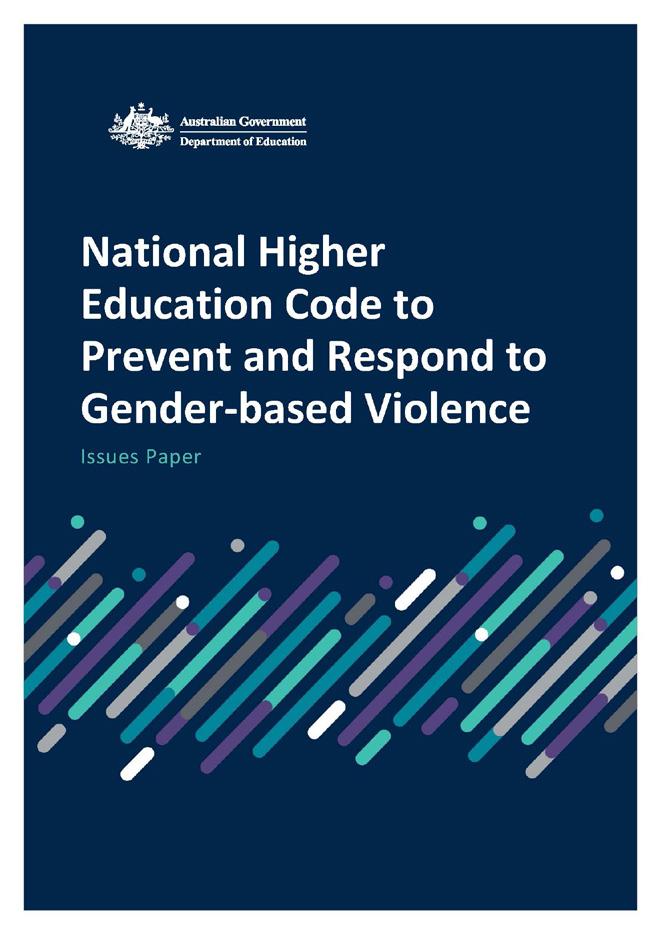

This journal is copyright and all rights are reserved. Apart from any use as permitted under the copyright Act 1968, no part may be reproduced without prior written permission. All reasonable efforts have been made to obtain permission to use copyright material reproduced. Every effort has been made to obtain accurate information for this publication. The views expressed in this journal are those of the authors and do not necessarily reflect those of APSAA.
ACKNOWLEDGEMENT OF COUNTRY
Australia: APSAA acknowledges Aboriginal and Torres Strait Islander people as the Traditional Owners of Country throughout Australia. We recognise Aboriginal and Torres Strait Islander people’s continuing connection to lands, waters and communities; and we pay our respect to them and their cultures and to Elders past, present and emerging.
Aotearoa | New Zealand: APSAA honours Te Tiriti o Waitangi | The Treaty of Waitangi as Aotearoa | New Zealand’s founding document and recognises the special place of Māori in Aotearoa as mana whenua.
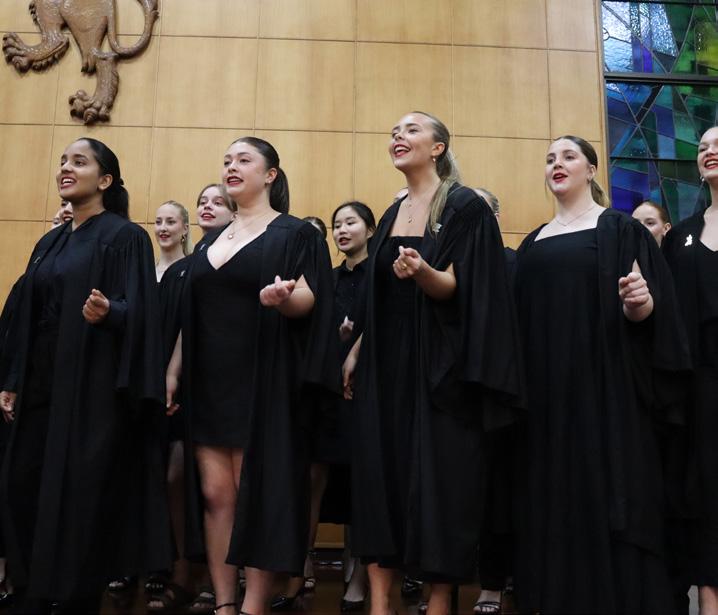
In this edition of the APSAA Journal, we focus on an issue that is reshaping our sector in real time: the introduction of the Australian Federal Government’s National Higher Education Code to Prevent and Respond to Gender-Based Violence. The articles you’ll read in these pages reflect years of advocacy, deep consultation, and the lived experience of those working every day to make student accommodation safer, more respectful, and more inclusive. While it is a code specific to Australia, the topic of preventing and responding to gender-based violence is applicable to all our members.
From policy analysis to practical training examples, from case studies within universities to the voices of those on the front lines, this issue is not only timely, but also a testament to the leadership our sector is showing in the face of change. What stands out to me is the way the work goes beyond compliance. These stories speak to a deeper commitment: to cultural transformation, to embedding trauma-informed and personcentred practice into every interaction, and to ensuring that every resident feels safe and supported, wherever they call home.
The diversity of perspectives is inspiring. We hear from providers who are strengthening partnerships with their universities to align reporting pathways and support systems. We see how student leaders are being equipped with the knowledge, confidence, and empathy to respond to disclosures appropriately. We read about institutions that are embedding preventative education into the fabric of their communities, not as a one-off intervention, but as an ongoing cultural conversation.
And we learn from innovative approaches such as restorative practices, bystander training, and culturally safe service design.
I am particularly proud of APSAA’s role in shaping the Code so that the realities of residential life are understood and addressed. This is reflected in the guidance, support, and peer networks we will continue to build for our members in the months ahead. But what this issue also reminds us of is that legislation alone does not change culture, people do. It’s the conversations we have with our teams, the training we deliver, the values we model, and the way we respond in moments that matter most.
The journey ahead will not be without its challenges. Aligning national standards with the practicalities of state and territory tenancy law will require thoughtful navigation. Building consistent capability across diverse providers will take time and persistence. But as the examples in this Journal show, we have the talent, the creativity, and the shared will to rise to the occasion.
This quarter we are also pleased to share details of our next four key events. The Aotearoa Regional Summit will take place in Hamilton, New Zealand on 17 November, followed by the Student Accommodation Essentials from 8-10 December 2025. The Global Housing Training Institute will run from 30 November to 4 December at the University of Queensland’s Gatton campus. Looking ahead to next year, our 2026 APSAA Conference will be held in Adelaide from 4 to 7 May under the theme Driving Excellence in Every

Encounter, marking a special celebration of 35 years of APSAA throughout 2026.
I hope you leave this edition not only better informed but energised to be part of that gathering and the work that lies between now and then. Thank you for the role you play in this vital work, and for your unwavering commitment to the students and communities we serve.
Mauri ora! | Go well.
Jacob Waitere President,
APSAA
Iam proud to introduce this September edition of the APSAA Student Accommodation Journal, which arrives at a pivotal time for our sector. With the passage of the National Higher Education Code to Prevent and Respond to GenderBased Violence, the focus now turns to implementation. Universities and their partners have until 1 January 2026 to develop comprehensive plans and become compliant with these new regulations.
This legislation is a watershed moment for higher education. It sets enforceable expectations for prevention, education, training, accountability, and support—and it recognises that these responsibilities extend
into the places where students live and build community. Student accommodation providers are therefore not just participants in this change, but critical partners in ensuring that safety, respect, and care are embedded into every aspect of student life.
What makes this edition especially significant is the candour and expertise of our contributors. Professionals from across the sector share insights that break down the Code, explore its practical implications, and demonstrate how accommodation providers can support their universities to meet both the letter and the spirit of these reforms.
APSAA is committed to leading and supporting our members through this
Dr Brenda Holt has been appointed as College Principal, Burgmann College.
NSW
Sarah Portelli has left the University of Sydney to take on the role of AU Regional Operational Manager & Head of Sales at Greystar.
Dr Bethany Mackay has been appointed as Director, Student Support and Wellbeing Services at University of QLD. Dr Mackay was previously Chief Wellbeing Officer at Central Queensland University.
Tonia Wright has been appointed to the role of Operations Manager – Scape Toowong and Scape St Lucia.
Arin Seal QLD Regional General Manager, Brisbane has left UniLodge.
Melissa Tracey has been appointed as Regional General Manager – Brisbane & Adelaide at UniLodge Australia.
SA
Brian Kennelly has commenced his role as Interim Head of College at St Mark’s
VIC
Trent Orchard has been appointed General Manager, Geelong at Deakin Residential Services.
SIMONE GALLO
National Manager
Student Accommodation
Australian Catholic
University, APSAA
Vice President, Communications and Engagement Committee
Chair

transition. We will continue to provide guidance, training, and communities of practice to ensure that our sector is equipped to deliver not just compliance, but meaningful cultural change.
My hope is that the voices captured in these pages both inform and inspire. This is our opportunity to help shape safer, more respectful, and more accountable higher education communities. Together, we can move beyond legislation to lasting change.
Thank you to all who contributed so generously to this issue. I believe it will serve as a valuable resource as we take this next step forward together.
Ken Hinchcliff at Trinity College will retire from his position of Warden at the end of this year.
Jessica Christiansen- Franks has been appointed Director of the Wade Institute, Ormond College replacing Nick Kaye
WA
Following the resignation of UWA Student Accommodation & Community Director
Ian Fitzpatrick, two interim appointments have been made: Matt Lawley as interim Director of Student Accommodation & Community, and Nicki Middleton as interim Director within the Deputy ViceChancellor, Operations portfolio, with both appointments running until the end of 2025.
Gender-based violence continues to be a deeply concerning issue across Australian higher education. For students living in residential settings—often away from home for the first time—the risks can be even more pronounced. That’s why APSAA has taken a leading role in shaping the National Higher Education Code to Prevent and Respond to Gender-Based Violence, ensuring that student accommodation providers are equipped and accountable to uphold the highest standards of safety, care, and respect.
APSAA’s formal involvement began in late 2023, when we were invited to contribute to the development of the national Action Plan Addressing Gender-Based Violence in Higher Education. Released by Education Ministers in February 2024, the Action Plan recognised the unique responsibilities of residential providers and the importance of embedding safety into every aspect of student living.
Over the course of 2023 and 2024, I had the privilege of representing APSAA in a series of consultations and working groups, including:
• November–December 2023: Participated in three key consultations on the draft Action Plan, including a targeted session with accommodation providers (27 Nov), a pre-caucus briefing (6 Dec), and a full consultation (7 Dec).
• January–February 2024: Engaged in focused meetings on finalising the Action Plan, including sessions on accommodation-specific provisions (30 Jan), and follow-ups with the
Department of Education (1 Mar).
• May–July 2024: Attended multiple Expert Reference Group (ERG) meetings (30 May, 13 June, 11 July), and led a dedicated discussion on Standard 7 (24 July), which focused on student accommodation.
• 18 December 2024: Participated in the final ERG meeting to review next steps for implementation.
• 31 July 2025: The Bill was formally tabled in the Senate, marking a significant milestone in the journey toward legislative adoption.
These engagements were instrumental in shaping the Code’s provisions around residential safety, reporting pathways, and trauma-informed care—ensuring they reflected the lived realities of students in dedicated student accommodation settings.
The Code sets out clear expectations for all higher education providers, including those operating student accommodation. It outlines a framework for:
• Creating physically and psychologically safe living environments.
• Providing accessible, trauma-informed reporting and support services.
• Delivering preventative education and staff training.
• Establishing strong governance and accountability mechanisms.
Thanks to APSAA’s advocacy, these standards are not only robust—they also take into consideration the practicalities of residential life. APSAA discussed amendments and
MARION GREY Chief Executive Officer, Deakin Residential Services

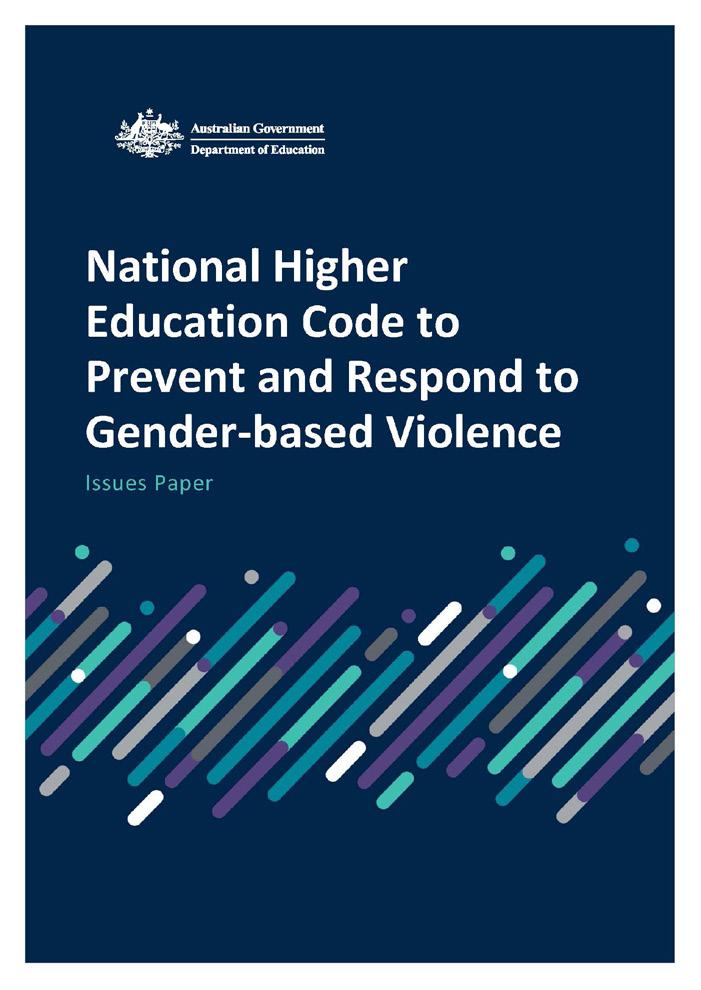
enhancements to drafts that took on board feedback relating to timeframes, who was responding out of standard University hours and the expertise engaged in our industry.
The introduction of the Code brings with it a new level of responsibility—and opportunity—for student accommodation providers. Key areas of impact include:
• Policy and Procedure Overhaul: Providers will need to align their internal policies with the Code, particularly around incident response, staff conduct, and student wellbeing.
• Training and Capacity Building: Staff at all levels will require training in trauma-informed care, bystander intervention, and cultural safety.
• Infrastructure and Safety Audits: Residential environments will need to be assessed and, where necessary, upgraded to ensure safety and accessibility.
• Data and Accountability: Providers will be expected to collect, analyse, and report data on incidents and responses, contributing to sector-wide transparency and improvement.
APSAA is committed to supporting a thoughtful, collaborative rollout of the Code. We envisage the implementation phase as an opportunity to build capacity, share knowledge, and embed a culture of safety and respect across the sector. Our approach will include:
• Guidance and Toolkits: APSAA will develop practical resources to help members interpret and apply the Code, aligned with guidance from the Department.
• Professional Development: A suite of webinars and workshops will be offered to build capability across the sector.
• Peer Learning Networks: We’ll facilitate communities of practice to share insights, challenges, and innovations.
• Monitoring and Evaluation: APSAA will support members in establishing feedback loops and evaluation frameworks to track progress and impact.
Higher education providers, including student accommodation operators, will be required to:
• Develop and implement a whole-of-organisation plan.
• Report to their governing bodies every six months.
• Deliver evidence-based prevention education and traumainformed response training.
• Engage in ongoing consultation with students, staff, and people with lived experience.
This framework ensures the Code is not only symbolic—it’s enforceable, with clear expectations and accountability for all providers.
Together,
we can ensure that every student who calls our residences home feels safe, supported, and empowered to thrive.
Importantly, we will continue to seek opportunities to support our members through initiatives such as the Residential Experience Standard (RES), which provides an annual snapshot of how gender-based violence is experienced and addressed in residential settings—giving voice to students and guiding continuous improvement.
The National Higher Education Code to Prevent and Respond to Gender-Based Violence Bill was formally tabled in the Senate on 31 July 2025, following its introduction in the House of Representatives earlier in the year. The legislation subsequently passed Australian Parliament and is now waiting Royal Assent.
Next steps in the legislative process include:
• Royal Assent: The Bill will be presented to the Governor-General for Royal Assent, at which point it becomes law.
• Code Activation: The Code will be enacted as a legislative instrument by the Minister for Education and will commence the day after Royal Assent.
• Consequential Amendments: A related Bill will ensure that compliance with the Code becomes a condition of registration under the Higher Education Support Act. Once in force, the Department of Education will monitor compliance through a dedicated unit. Higher education providers, including student accommodation operators, will be required to:
• Develop and implement a wholeof-organisation plan.
• Report to their governing bodies every six months.
• Deliver evidence-based prevention education and trauma-
informed response training.
• Engage in ongoing consultation with students, staff, and people with lived experience.
This framework ensures the Code is not only symbolic—it’s enforceable, with clear expectations and accountability for all providers.
The introduction of the National Code marks a truly transformative moment for student accommodation in Australia. APSAA’s involvement—from the early stages of the 2023 Action Plan through to the development and passing of the Code— has ensured that the voices of residential providers and students have been heard and respected throughout this journey.
As we look ahead, our shared responsibility is clear: to foster safe, inclusive, and supportive environments that build on the incredible work already being done across our sector. Having stood in the room at the APSAA Conference in May 2025, where we dedicated an entire day to addressing gender-based violence, I was deeply moved by the passion and commitment of our community. It’s evident that we are united in our determination to make a meaningful difference.
Of course, we know there will be challenges— particularly in navigating the complexities between federal requirements and state-based residential tenancy legislation. But APSAA’s commitment over the past two years speaks volumes. We will continue to advocate, represent, and maintain open and constructive dialogue with the Department throughout the implementation phase and beyond.
Together, we can ensure that every student who calls our residences home feels safe, supported, and empowered to thrive.
The introduction of the National Higher Education Code to Prevent and Respond to Gender-Based Violence marks a pivotal moment for Australia’s university and student accommodation sectors. It is not merely a new set of compliance requirements – it is the beginning of a long-overdue cultural shift, shaped by the voices of students, staff, and advocates who have consistently called for meaningful action.
For the first time, universities and student accommodation providers will be held to national standards, with oversight mechanisms and significant consequences for non-compliance. This is a significant step forward in recognising that safety is not optional – it is a core responsibility.
The National Code’s seven standards are intentionally interdependent. Taken together, they provide a whole-of-organisation framework to embed systemic change. For this reason, there is no single program or tool that meets all standards; universities and student accommodation providers must implement multi-level, multifaceted strategies that cover all areas of operations. At the heart of these strategies must be a commitment to eliminate gender inequality and other forms of discrimination – the factors that drive violence against women and LGBTIQA+ people.
Student accommodation is singled out in the National Code because evidence shows it is a high-risk environment for genderbased violence to occur. From 2026, student accommodation is no longer ‘at arm’s length’ from universities – they must collaborate to provide co-ordinated and timely trauma-
DR RENÉE HAMILTON Managing Director of Equality Partners

“The National Code is not a bolt-on initiative; it is a foundational shift that must be reflected in how universities and student accommodation providers operate at every level.”
informed responses, manage risks to safety, and hold perpetrators to account.
Complying with the National Code means more than updating a policy document or running a one-off training module on consent. It means critically examining policy frameworks, continually uplifting skills and knowledge, and actively working to address inequality and discrimination across the organisation’s practices and structures.
The National Code must be woven into the fabric of existing systems – complementing governance structures, student support services, human resource processes, and risk management frameworks.
Put simply, the National Code is not a bolt-on initiative; it is a foundational shift that must be reflected in how universities and student accommodation providers operate at every level.
As universities and student accommodation providers prepare to submit their Whole-ofOrganisation Prevention and Response Plans by the end of 2025, critical implementation questions must be front of mind. Each Plan should reflect a tailored, evidence-
informed strategy that spans governance, education, systems and culture. It must meaningfully include the voices of students, staff, subject matter experts, people who have experienced gender-based violence and those groups that experience higher rates of this violence than others.
Key considerations for student accommodation providers include:
• Governance and oversight: What leadership structures will ensure accountability and oversight, including reporting to accommodation and university senior executives and governing bodies?
• Risk and response systems: What systems and frameworks exist (or need development) to enable qualified experts to assess risks within mandated timeframes?
• Education and training: How will prevention education and training be embedded, contextualised, and delivered to all relevant groups –including contractors, pastoral care leaders, and residential staff?
• Policy coherence: Do current disciplinary procedures and incident management systems reflect a victim-centred, whole-of-organisation approach?
• Information-sharing agreements: What arrangements are in place between accommodation providers and relevant universities to share information about disclosures, risk and student support?
• Safety-first responses: Is there sufficient understanding across the organisation of how to prioritise victim-survivor safety in the context of risk management, legal obligations and their agency?
• Continuous improvement: What monitoring, evaluation and learning frameworks are in place to track progress, capture feedback and pivot when required?
But this is only the beginning. The National Code is designed to be iterative, with implementation evolving in response to evidence, feedback, and lived experience. Universities and student accommodation providers must treat this as the first phase of a continuous improvement journey – one that requires leadership, transparency, and a genuine commitment to cultural change.
Embedding this work will take time, resources, and courage. It will require universities and student accommodation providers to listen deeply, act decisively, and remain accountable to the communities they serve. But the stakes are too high for anything less. Every student and staff member deserves to feel, and be, safe where they study, work, live and socialise – and the National Code is a critical step toward making that a reality.
Dr Renée Hamilton is Managing Director of Equality Partners, a consultancy dedicated to supporting organisations to advance gender equality and address gender-based violence. She is a sector strategist with over 20 years of expertise in gender-based violence prevention, policy, response and advocacy. Renee led the development of the National Higher Education Code to Prevent and Respond to Gender-Based Violence as well as the Action Plan Addressing Gender-based Violence in Higher Education. She is the former CEO of the National Women’s Safety Alliance and also led the university sector’s work to address genderbased violence for over seven years. She is known for translating complex policy frameworks into practical strategies that drive lasting change across organisations.

ELIZABETH KUO-GOLLAN
Senior Internal Communication
Project Advisor
University of Technology
Sydney
In a bold and multi-channel effort to create a safer, more respectful campus, UTS has launched a six-month campaign aimed at raising awareness and encouraging action against gender-based violence (GBV). Anchored within the university’s Respect. Now.Always (RNA) program, the campaign reflects a whole-of-community approach that spans digital, physical, and social platforms.
‘Through education, and stopping the social stigmas and norms on what people of certain genders should, and shouldn’t do.’ – student vox pop answer, April 2025.
Timed to coincide with Sexual Assault and Awareness Month, the campaign kicked off in April with a series of reels on UTS’s social platforms, Instagram and Facebook. These featured real students and staff answering questions like “What is gender-based violence?” and “What does it mean to stop violence before it starts?” Garnering over
20,000 views and over 200 likes, the post reflected on the gender-based violence crisis and UTS’s zero tolerance approach.
This social content was atomised across vertical campus screens in May, reinforcing our message in high-traffic areas. The campaign aligned with national initiatives such as Our Watch’s #ThisisPrevention campaign and broader cultural conversations such as the annual Walk for WAGEC fundraiser. 2025 was a particularly timely year as one of our student teams, Australian Football Club UTS Bats, walked to honour the life of their teammate Audrey Griffin, a UTS student and athlete, who was killed in the Central Coast at the hands of male violence.
The campaign accelerated in June and July with a prominent visual presence across campus screens, including lifts in Building 1, social spaces like


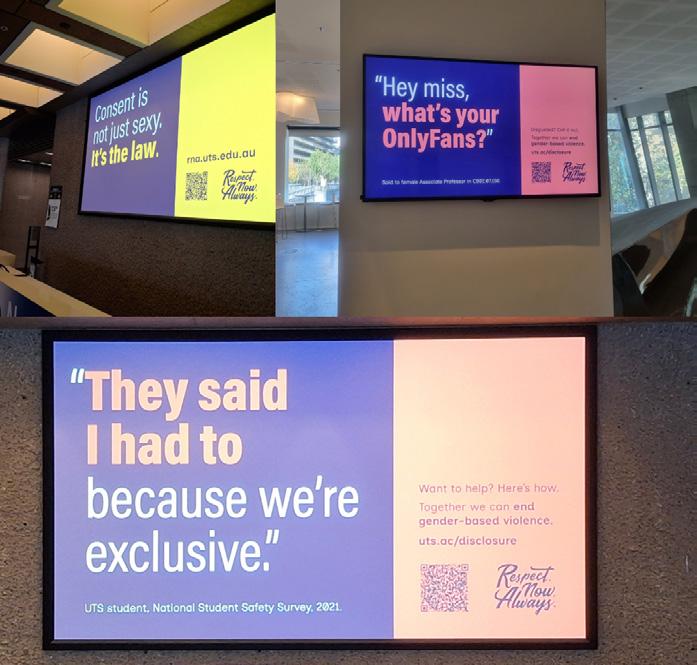
UTS Campus screens
The Underground Bar and Gym, and faculty-specific locations.
This turned into hard-hitting, relatable content reflecting lived experiences on campus, content varied by site — some featuring AI themes in Engineering and IT, casual sexism in areas such as the Gym, while others showcased personal stories and scenarios of GBV, such as inappropriate comments in staff kitchens or open Q&A sessions.
Physical assets including postcards and A4 posters were distributed in student and staff areas, including bathrooms and security offices. Reposts and shares from staff on their own LinkedIn and Instagram platforms added authenticity, and created a reach that extended beyond the campus walls.
Amassing over 35,000 impressions and views, one particular academic – Associate Professor Amanda White, OAM – shared her personal experience and ended her powerful post with the campaign’s call to action: “Together we can end gender-based violence.”

August – September: Looping back and looking forward
As we move into the last stage of this campaign, we’re looping back into a campaign first introduced in 2021. Reflecting on our zero-tolerance approach to any forms of gendered violence, posters will be replaced with refreshed materials, and events like Spring Orientation and O’Day leveraged to extend reach.
Key learnings and reflections
• Stakeholder engagement as foundational, not optional: To shape this campaign, we sought feedback from key stakeholders across the university, including academics, students and professional staff from faculties, the People Unit, the Provost Office, Health, Safety and Wellbeing, and MCU. They provided direct feedback into the campaign’s planning, design and execution.
• Courage and sensitivity: GBV is a confronting topic. While UTS champions open dialogue, not everyone is ready to speak publicly. The campaign’s success relied on volunteers and careful planning.
• Repurposing with purpose: Social content became screen content, which became printed collateral. Interviews were transformed into news articles and
disseminated across internal channels— from all-Staff News to faculty newsletters.
• Collaboration is key: The campaign drew on the expertise of faculty and central teams, volunteers, and advocates. External partnerships, such as Our Watch and leveraging external awareness days such as Sexual Assault and Awareness Month, enriched the campaign’s relevance, credibility and reach.
Looking ahead
With the incoming Code and national prevalence survey, 2026 is looking to be a significant year, with the spotlight on Australian universities and their demonstrated commitment to prevent gender-based violence.
At UTS, via our Respect.Now.Always. program, we’ve been committed to this cause since 2017. As we continue to embed safety and respect into every layer of its community, this year’s ‘Prevention in Action’ campaign stands as a testament to what’s possible when awareness meets action. Whether through engagement with our signature activations, a screen message in a campus lift, or an event collaboration with UTS Housing, every touchpoint reinforces the message that together we can end gender-based violence.
Prevention in action: UTS snapshot
• 91% of students reported satisfaction with ‘information about sexual consent, harassment or assault’ at UTS, marking a 6% increase from the previous year (2024 Student Satisfaction Survey).
• 77% of students believe ‘UTS provides a supportive environment for students to call out and/or report instances of sexual harassment’ (2024 UTS Student Satisfaction Survey).
• As of June 2025, 160,000 successful completions of Consent Matters training around navigating healthy relationships and bystander intervention.
• Over 16,000 members of our community engage in our event activations each year, participating in dialogue about sexual consent, bystander intervention and support.
ANDREA ROHDE Deputy Principal, Flinders Living, APSAA Board Member & Professional Development
and Research and Knowledge Committees Member
In student accommodation, staff may be among the first people a resident confides in after being raped or sexually assaulted. The way staff respond in these moments can have a significant impact on the resident’s wellbeing, safety, and recovery. The National Code requires responses to be person-centred and trauma-informed, but what do these approaches mean in practice? This article explains these frameworks and how they can be applied to student accommodation.
A person-centred approach places the individual who has disclosed an incident at the heart of the response. It involves respecting their autonomy, prioritising their rights, safety, and wellbeing, and ensuring that their preferences shape the support provided. It also means avoiding assumptions about what is best for them.
A trauma-informed approach recognises the widespread impact of trauma and how it affects a person’s emotions, behaviour, memory, and sense of safety. This approach ensures the person feels safe, listened to, and believed. It also involves avoiding language or actions that might retraumatise, providing clear information to build trust, and being sensitive to cultural backgrounds and identities.
Together, these approaches ensure that responses to disclosures do not inadvertently cause further harm, and that the individual is supported in a way that is compassionate and respectful.
Applying these principles in student accommodation:
Accommodation providers should ensure that students have accessible and safe pathways to disclose experiences of sexual misconduct. This includes offering an online reporting option that allows students to choose between anonymous disclosure or providing their identifying information, depending on what feels safest for them. As residents often confide in a friend first, it is important that staff are approachable and available to support either the student directly affected or their friend seeking guidance. When disclosures are made in person, staff should offer a quiet, private space where the resident can speak confidentially and without interruption.
Communicating with Sensitivity and Respecting Autonomy
When a resident discloses sexual misconduct, their response may be shaped by trauma. They might struggle to articulate their experience, have gaps in memory, or present with a range of emotions, including emotional numbness or a flat affect. Residents may avoid eye contact due to shame, fear, or embarrassment, and this should not be interpreted as dishonesty.
Some residents may minimise the incident or blame themselves, saying things like, “I shouldn’t have been drinking” or “It’s not that bad”. Staff should gently challenge these thoughts, reminding the resident that responsibility lies solely with the perpetrator.

It is important to validate the resident’s experience and empower them to make their own decisions. Acknowledging the bravery it takes to disclose can help the student feel supported and respected. For example, saying, “I’m really sorry that this happened to you. Thank you for trusting me with this information”, can provide reassurance that they are being heard and believed. It is equally important to clearly explain that the student has choices regarding what steps they may wish to take next, and that your role is to help them explore those options without applying pressure. This helps to restore a sense of agency and control. It may be necessary to put aside personal beliefs (for example, that someone should report to the police) and ensure that decision making sits with the victim/survivor.
Avoid pressing for unnecessary details or asking questions that imply blame, such as “Were you drunk?” or “Why did you leave your friends?” Be mindful of tone, posture, and facial expressions to avoid conveying disbelief or judgement.
Victim/survivors need clear information on available support services, including counselling, medical care, and reporting options. If unsure of specific services, staff can contact relevant organisations (e.g., the Sexual Assault Service) with the resident’s consent, placing the call on speaker so the resident hears directly from a professional. Be transparent about confidentiality, including who needs to know about the disclosure.
Staff should ask if the resident has any cultural, religious, or personal needs that should be taken into account. Offer referrals to culturally appropriate services, such as Indigenous support officers or LGBTI+ services. Be aware that some residents may face stigma or discrimination within their cultural communities, which can affect their willingness to seek help, or exacerbate trauma reactions.
Residents may not feel safe in their current room. If this is the case, assist with a discreet room change or other safety measures. Offer to contact support services on the resident’s behalf and help them connect with appropriate resources.
Disclosures should be documented factually and without judgement, using the resident’s own words where possible (eg “the student stated…”). Notes need to be made promptly after the disclosure and include any referrals or follow-up actions. All records must be stored securely with password protection and restricted access.
Check in with the resident after a few days to see how they are. If the alleged perpetrator is also a resident, appropriate staff from the organisation should conduct a risk assessment. This is one instance where action may need to be taken to protect the broader community, even if the victim/survivor is not requesting it. Any decisions here should be conveyed sensitively to the victim/survivor.
Supporting someone who has disclosed sexual misconduct can be stressful. Debrief with appropriate colleagues, access support through the Employee Assistance Program (EAP) or a counselling service, and practice self care strategies to look after yourself.
Supporting a resident who discloses sexual misconduct can be complex and requires care, sensitivity, and informed practice. By adopting person-centred and trauma-informed approaches, staff can help ensure residents feel heard, believed, and supported and minimise further harm. Embedding these practices contributes to a residential culture of respect, safety, and accountability.
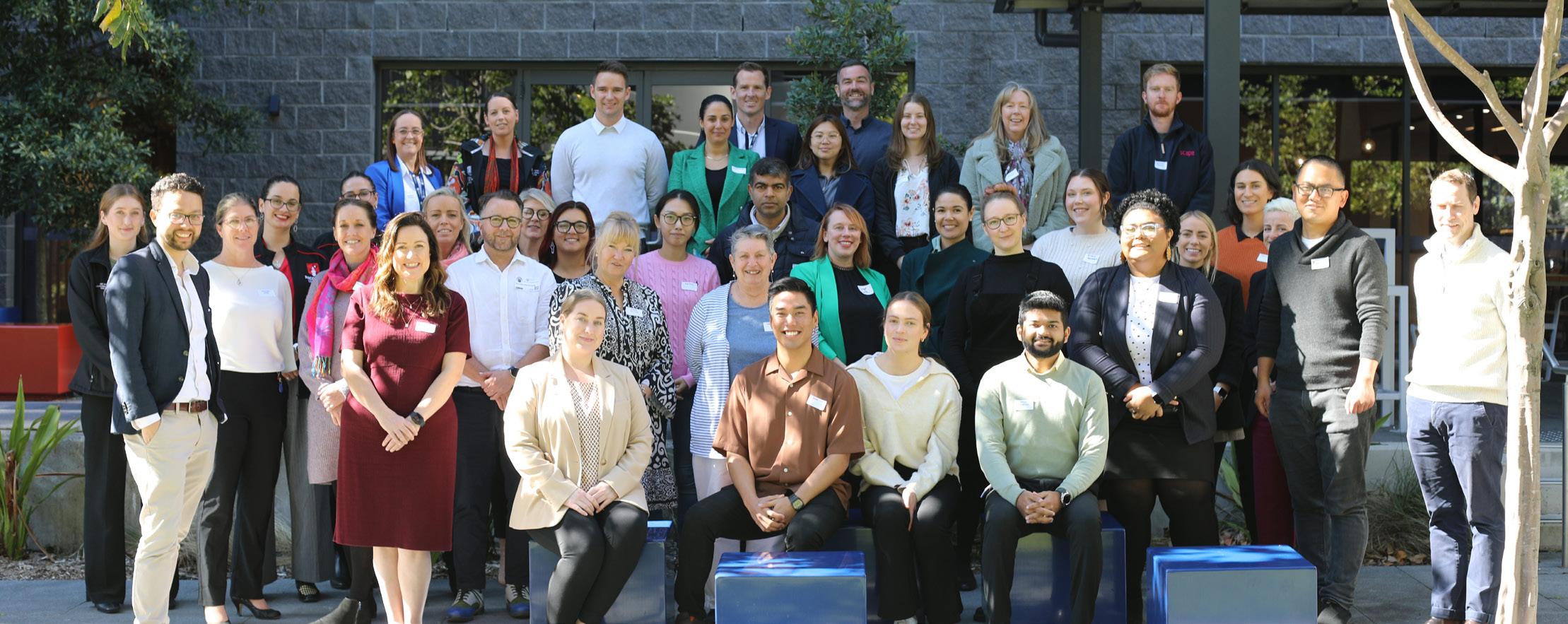
APSAA industry partners have the opportunity to connect and collaborate with our growing membership across the region and leverage with affiliate associations around the globe.
To meet the needs of both our members and sponsors, APSAA has evolved the way in which we facilitate advertising, communications and engagement activities. Through advertising in our quarterly industry journal, our monthly newsletter and webinar series, or through our website and social media platforms, advertisers will have the opportunity to engage meaningfully with stakeholders across the sector.
These are unique and highly targeted opportunities that will put your brand front-and-centre for leaders and staff across the Student Accommodation Industry in the Asia-Pacific region.
LAURA BURGE Director, Swick Learning

It’s 9:00pm on a Wednesday. One of the RAs is halfway through a study session when there’s a knock at the door. It’s a student from down the hall - quiet, hesitant. They eventually blurt out that a friend told them they were hurt by someone they’ve been seeing. They haven’t left their room in days, won’t talk to campus security or counselling, and don’t want to report, but they’re not okay. The RA listens. They want to help, but what they do next depends on more than good intentions. It depends on whether they’ve been trained to recognise gender-based violence, respond to a disclosure safely, and refer a student to the right support. What happens in the next five minutes isn’t just about process, it’s about safety, dignity, and whether a student in crisis is met with care or confusion.
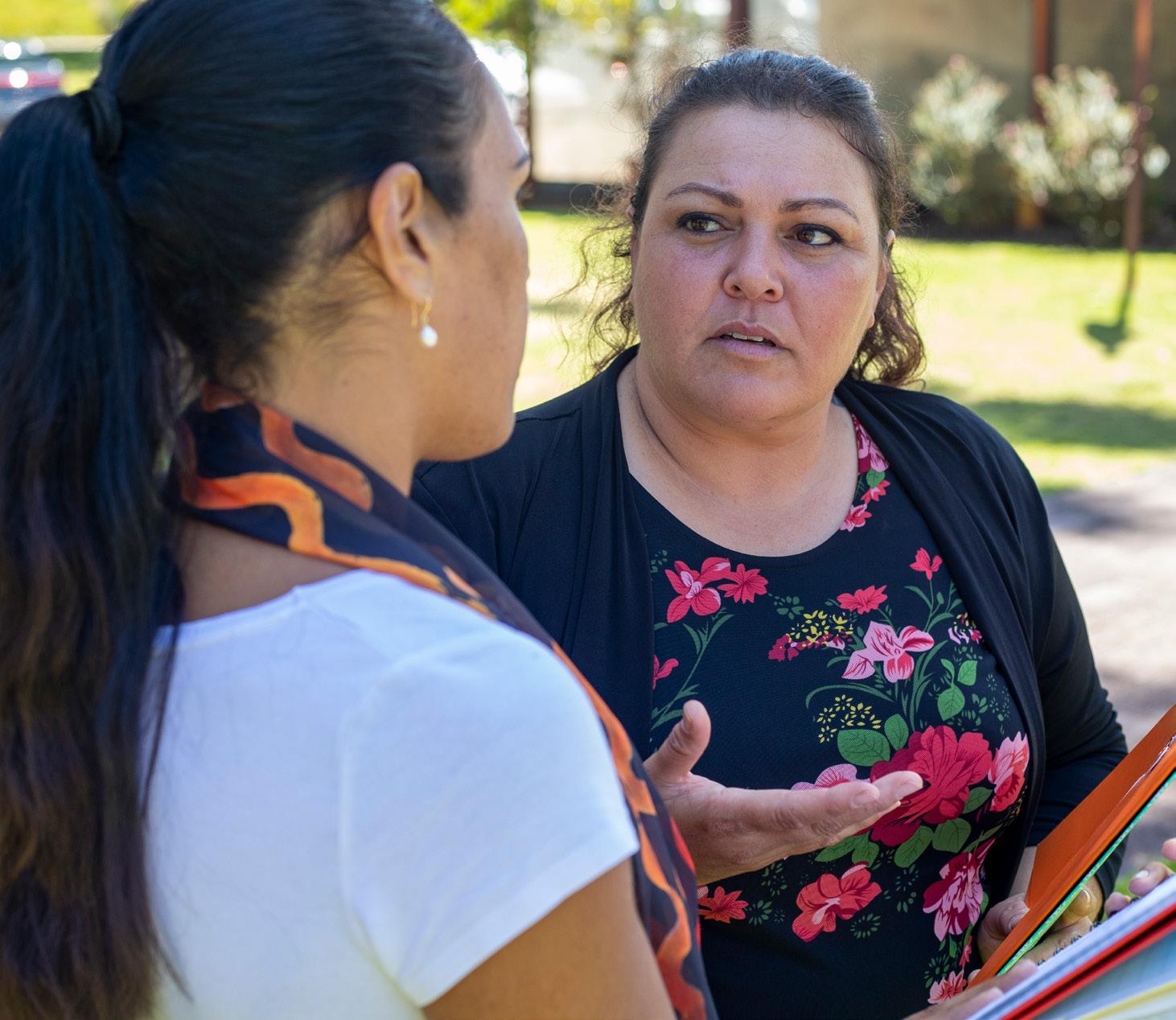
Scenarios like this aren’t necessarily rare and they’re not always obvious. They highlight a deeper truth: that student accommodation teams are often first responders, even if they don’t realise it.
The sector has long argued that student accommodation isn’t just where people sleep - it’s where they live, socialise, build relationships, and learn what it means to be part of a community. That makes it a powerful setting for early intervention and support when it comes to gender-based violence (henceforth GBV). Unlike most other university environments, residences operate 24/7 under a unique mix of informal and formal interactions. Staff may overhear conversations, student leaders might be trusted first, and incidents often happen outside ‘business’ hours. When it comes to safety, clarity matters, and that’s where education comes in. Knowing what GBV can look like, how it can show up in a residential setting, and how to respond (wherever and whenever it occurs) is essential in creating safer environments.
Whilst the proposed National Code to Prevent and Respond to Gender-Based Violence (the Code) sets out clear expectations, it also presents an opportunity to enhance the work already underway in many residential settings to ensure communities reflect the values of respect, inclusion and accountability.
What the Code says about ‘Knowledge and Capability’
The Knowledge and Capability standard of the Code places a clear responsibility on institutions and student accommodation
providers to ensure that all staff, students, and peer leaders have the skills, knowledge, and confidence to prevent and respond to GBV in ways that are trauma-informed, inclusive, and aligned with best practice.
Specific expectations under the Knowledge and Capability domain of the Code include the requirement for:
• Training for staff and student leaders
• Awareness campaigns and education for students
• Culturally safe and inclusive materials
• Regular review and update of content
Institutions must ensure that
• All members of the university community receive education and training appropriate to their role;
• Training is regular, evidence-based, trauma-informed, and intersectional;
• Programs are evaluated and adapted to reflect feedback and emerging best practice
So, what should you focus on?
It’s easy for training and education to become just another tick-the-box exercise. Not out of neglect or ill-intent, but because so many topics compete for time, attention, and resources in a residential setting. However, GBV isn’t just another item to add to the list. Meeting the requirements of the proposed Code won’t be quick or straightforward, but here’s where to focus your efforts to make a real difference:
1. Audit what exists. Start by mapping what training is already in place. For example, check’s what’s mandatory, how often is it delivered and updated, and the qualifications or expertise of trainers and facilitators. Are the materials evidence-based, trauma-informed, and accessible? What outcomes are being met? What feedback is being gathered and how is it being used? Identify the gaps and what’s needed to close them.
2. Map what is needed. Define the core knowledge, skills, and capabilities
Student accommodation teams are often first responders, even if they don’t realise it.
required across your environment to prevent and respond to GBV. Consider role-specific needs, for example, frontline staff will need training in traumainformed response, while student leaders may need a clearer understanding of referral processes. Identify foundational capabilities (e.g. understanding consent, respectful communication) and specialist competencies (e.g. responding to disclosures, managing incidents). Use this analysis to inform priorities and resourcing for learning, development, and systems strengthening.
3. Co-design with community. Engage student leaders and peer educators, equity and accessibility teams, First Nations and LGBTIQA+ staff/ students, HR and legal advisors. Good design should reflect the realities and identities of your community.
Practical ways to do this include:
• Run co-design workshops or focus groups with diverse student and staff voices to shape training content, tone, and delivery style.
• Use anonymous feedback tools (e.g. surveys, suggestion boxes, digital polls) to ensure wider input and psychological safety.
• Invite students or staff with lived experience (where appropriate and supported) to review materials or consult on language and framing.
• Offer paid consultation or honoraria for those who contribute their time and expertise.
• Partner with existing networks (e.g. Pride groups, Indigenous student associations, accessibility committees) rather than building new engagement
processes from scratch.
• Pilot training modules with small, diverse groups and refine them based on feedback before wider rollout.
• Include an open call-out for contributors or reviewers through your internal communications channels to reach a broader audience.
4. Partner with subject matter experts and specialist organisations. Leverage the expertise of those already working in GBV prevention and response. Partnering with specialist organisations can bring credibility, depth, and fresh insight to your training, resources, and response protocols. Consider engaging specialists to co-deliver sessions, review existing content, or provide tailored advice. Build relationships with local services, such as sexual assault support centres, legal aid, or culturally safe support providers, to ensure your community has appropriately tailored educational materials.
5. Learn from others in the sector. Reach out to other accommodation providers, both within and beyond higher education, to share resources, approaches, and lessons learned. Establish communities of practice or informal networks to collaborate on common training challenges and lift the standard across the sector. Pooling efforts can reduce duplication, save costs, provide access to shared resources, increase impact, and ultimately create more consistent educational experiences for students.
6. Mandate role-specific training. Content, duration and format may vary, but all members of the community should be involved. Leadership and executive training should focus on understanding accountability, decision-making
influence, and reputational risks; frontline staff should receive responding to disclosures training; support staff training should focus on referral pathways, documentation, and confidentiality and student training should cover consent, respect, and where to get help.
7. Encourage senior executives to lead by example. If your leadership team hasn’t completed the training, the message to the community is clear that this is optional. Require all senior staff to complete foundational and advanced content. Where appropriate, involve leaders in delivering key messages or sponsoring sessions. Publicly acknowledge their participation to build momentum and model accountability. Leadership buy-in also ensures the necessary resources, time, and attention are given to sustain learning across the organisation.
8. Prioritise practicality. Training should equip people to respond to disclosures with empathy, know when and how to escalate, understand institutional and organisational processes (and their role in them), and create safer environments in everyday interactions. Build content around real-world scenarios relevant to student accommodation, including disclosures at night, in social settings, or online. Provide clear protocols, cheat-sheets, or decision trees that are clear, accessible and can be referenced ‘on the job.’
9. Keep the learning alive. Make learning ongoing, not just ‘one and done.’ Offer refreshers annually or as deemed appropriate, create short videos or micro-learnings, and embed GBV content into broader leadership development, health and safety briefings, student leadership training, and faculty inductions. Celebrate learning milestones and encourage peer-to-peer reflection. Building a culture of continuous learning strengthens capability, reduces risk, and supports staff in embedding respectful practices into daily work.
10. Track and report progress. You can’t improve what you don’t measure.
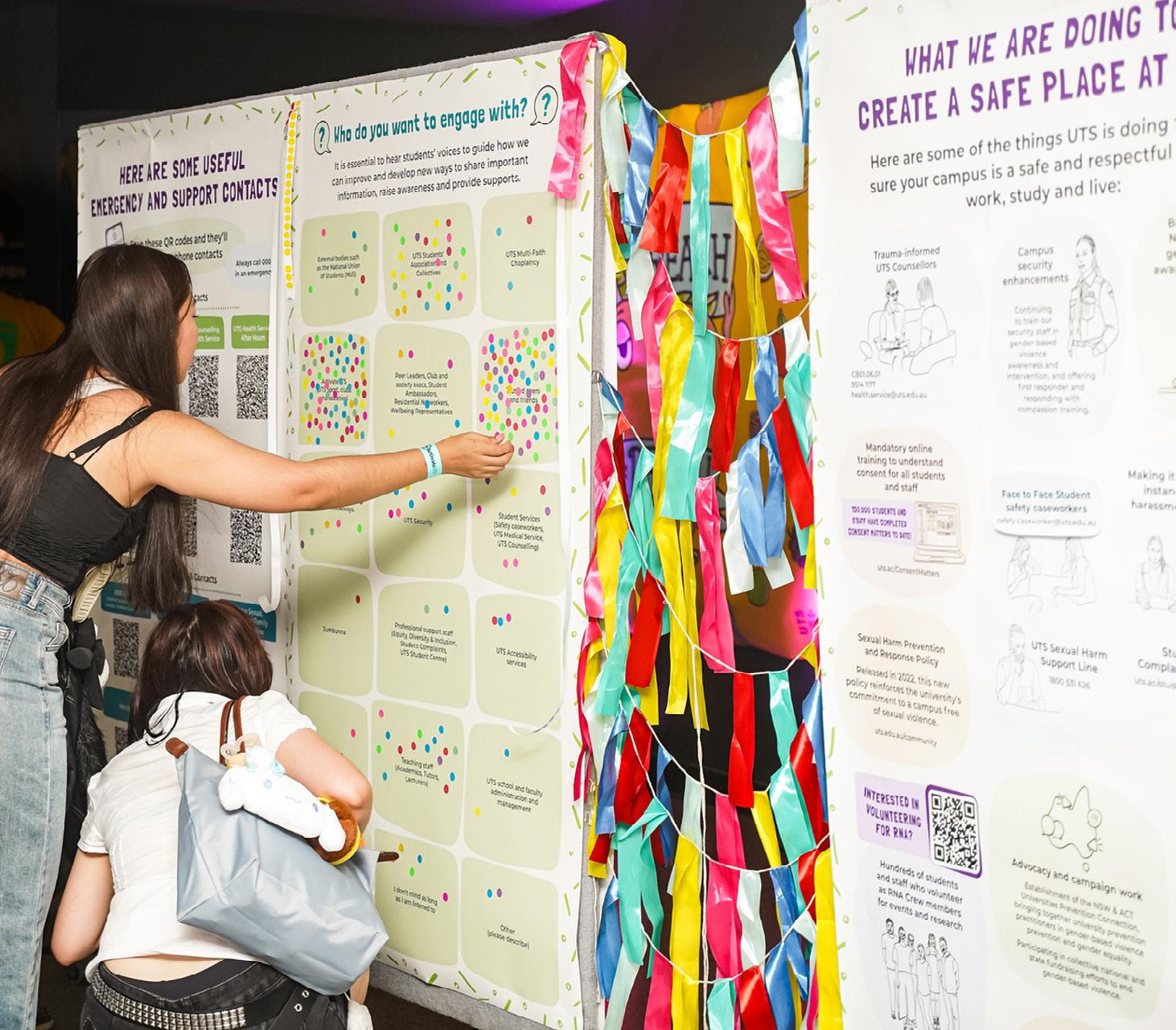
Establish systems to track not just who attended, but whether training is making a difference. Use pre- and post-training evaluations to measure changes in knowledge, confidence, and intended behaviours. Gather qualitative feedback to refine content and delivery. Monitor trends in disclosures, incident responses, and staff referrals over time to identify where additional support or training may be needed. Report progress to leadership and governance groups to ensure transparency and accountability and share success stories to encourage engagement.
11. Share your learnings. Too often, valuable lessons from prevention and response work remain siloed. Sharing what you’ve tried (what worked, what didn’t, and what you’re still figuring out) can save others time, spark collaboration, and strengthen sector-wide practice. Use internal and external platforms to communicate your insights, present at
conferences, write case studies or journal articles, or share short reflections via newsletters, LinkedIn, or community of practice networks. If you’re collecting data or feedback, consider seeking ethics approval to publish findings more formally. Engaging in reflective, transparent knowledge-sharing creates teachable moments not just for your team, but for others doing similar work. It also builds awareness, opens doors to partnerships, and contributes to a stronger evidence base for what prevention and response looks like in real-world accommodation settings.
While there’s growing momentum across the sector, it’s important to acknowledge that in many ways we’re ‘building the plane while flying it.’ We don’t yet have a comprehensive evidence base or a suite of fully tested programs tailored to higher education let alone student accommodation settings.

That means this work won’t be perfect, and that’s okay. What matters is intentionality, reflection, and progress over perfection.
Some common gaps to watch for include:
1. One-off training or induction that fails to create lasting change. True impact comes from embedding key messages across the learning journey, through language, conversations, campaigns, and ongoing development.
2. Overly standardised or generic content that doesn’t reflect the diversity of your student community. Ensure key messages are co-designed, translated where needed, and informed by student voice.
3. Over-reliance on student leaders to carry the load. Staff, general residents, and community champions all play a role. Create shared responsibility and ensure students aren’t positioned as the sole drivers of culture change.
4. Evidence isn’t always impact. Adopting evidence-informed programs is a
Policies and systems alone won’t create safer environments. It’s people, equipped with the right knowledge, skills, and support, who can make all the difference.
matter how small, contributes to building safer, more respectful living environments.
Start small. But start somewhere and start now.
The new Code makes it clear: policies and systems alone won’t create safer environments. It’s people, equipped with the right knowledge, skills, and support who can make all the difference.
Student accommodation teams care deeply about their communities, but caring isn’t the same as knowing what to do.
strong start, but it doesn’t guarantee they’ll be effective in your context. What works in one setting may not translate seamlessly to another and localised testing, evaluation and adaptation are essential. To truly understand impact, you need to measure what’s changing on the ground among your staff, your students, and within your unique community. This is evolving work, and there is no onesize-fits-all solution. But every effort, no
You can have the most robust strategy on paper, but if your people don’t understand it or feel confident to act, meaningful change will stall. Knowledge alone isn’t everything, but in the face of harm, it can be the difference between silence and support, missed signs and early intervention, and confusion and clarity. When we build capability, we build the conditions for real, lasting change.
In nearly every training session and conversation about restorative justice (RJ), one topic consistently arises: its application in cases of gender-based violence. The questions are often immediate and practical: How do you facilitate a conference between a victim/survivor and an offender? How is it trauma-informed? Who should be in the room, and why? When can we start implementing this?
These questions reflect a growing urgency to “do things differently” in university settings. Many feel stuck in systems built on shame, blame, and punishment — or on reputational management that takes precedence over trauma-informed approaches. While RJ as a response to harm is vital, just as any approach that empowers victim/ survivors and increases accountability is, here is a broader opportunity that those in student accommodation and university communities can embrace: the power of restorative practices to address the drivers of gender-based violence.
As outlined by Our Watch, the key drivers of gender-based violence include rigid gender roles, male dominance in decision-making, disrespect toward women, and cultures that excuse or downplay violence. These drivers are not abstract; we witness them in homes, workplaces, and campuses. Because they are shaped and reinforced in these environments, they can also be disrupted and changed within them (Our Watch, 2015).
This is where restorative practice becomes transformative, particularly in student accommodation and broader university life. While RJ and restorative
practice are often used interchangeably, they serve distinct purposes.
Restorative justice is a formal, reactive process. It brings together those who have caused harm, those who have been harmed, and relevant community members in a facilitated dialogue — led by trained practitioners. The goal is to repair relationships and restore trust. When used appropriately and with care, RJ is a powerful tool, especially when trauma-informed approaches prioritise the needs and choices of victim/survivors.
Restorative practice, by contrast, is proactive. It focuses on building and maintaining conditions that reduce the likelihood of harm. It includes everyday tools — such as affective statements (expressing how someone’s actions made you feel), informal conversations, and restorative circles — that foster empathy, connection, and accountability across communities.
“Restorative practice offers universities a practical, values-based approach to actively challenge the conditions that lead to gender-based violence and foster cultures of respect, accountability, and inclusion.”
JAMIE-LEE COSTA Senior Manager, Student Support, University of Newcastle

Restorative practices offer a proactive, values-driven approach that aligns closely with the 12 actions identified by Our Watch to prevent violence against women. By fostering respectful relationships, promoting gender equality, and challenging harmful norms through everyday dialogue and emotional literacy, restorative practices help disrupt the cultural and structural drivers of violence. These practices support shared power, accountability, and inclusion; creating environments where sexist attitudes, rigid gender roles, and aggression are actively addressed. When embedded across university communities, restorative approaches contribute meaningfully to the systemic change needed.
At the heart of restorative practice is the theory of shame, particularly as developed by Donald Nathanson in his Compass of Shame. Shame is a universal human emotion, and our responses to it shape behaviour. When shame is ignored or poorly managed, it can lead to denial, aggression, or withdrawal. But when acknowledged safely and constructively, it becomes a powerful pathway to empathy and behavioural change.
This is supported by the restorative practice framework, which promotes environments that are both high in expectations and high in support. These are cultures where individuals are held accountable and cared for — where respectful relationships are modelled, reinforced, and expected. In university settings, this is not merely a behaviour management tool; it is a foundational element of prevention.
Restorative practice offers universities a
practical, values-based approach to actively challenge the conditions that lead to gender-based violence and foster cultures of respect, accountability, and inclusion.
Through affective communication, restorative conversations, and emotional literacy, we create spaces where power is shared, harmful norms are disrupted, and respect becomes the cultural baseline. These practices are not just for responding to misconduct — they are about reshaping everyday interactions, so the drivers of violence are less likely to take hold.
Behaviours often normalised as “everyday” occurrences — such as sexist jokes, degrading language, or the underrepresentation of women in leadership — are not harmless. They reflect and reinforce a culture
of inequality and disrespect, creating conditions in which gender-based violence can occur. Restorative practice offers a proactive way to interrupt this culture. It provides tools to name harm early, foster accountability, and build respectful relationships that directly challenge these drivers before violence takes root.
Alongside evidence-based formalised prevention programs, everyday actions at every level should serve to disrupt the drivers of gender-based violence. Restorative practice offers a practical and powerful tool to do just that.
Want to know more:
The Little Book of Restorative Justice
for Colleges and Universities, Second Edition — David R. Karp, Marilyn Armour
The Little Book of Restorative Justice for Campus Sexual Harms — Rachel Roth Sawatzky, Mikayla W-C McCray
Jamie-Lee (JL) is a restorative justice practitioner and educator with extensive experience in university settings. Specialising in the integration of restorative practices into campus culture, JL works to prevent gender-based violence and foster equity and connection. This work brings together expertise in consent education, restorative practice, student development, and community building, with a focus on creating inclusive, trauma-informed environments that support meaningful change.


725 241 | constant.com.au An embedded part of your team, your RSO brings: With the Gender-Based Violence Code raising the bar on institutional responsibilities, now is the time to act. Constant’s Resident Support Officers (RSOs) are trusted professionals embedded in student communities to provide real-time, on-site support. From late-night welfare checks to gender-based violence response, they’re there when your students need someone — not something. A trusted on-site, out-of-hours presence
Best practice support for incident response, de-escalation and critical incidents
Active and integrated presence to support the prevention of gender-based violence
Tailored support models to suit your campus or college
The confidence of a service already trusted by leading Australian universities and colleges

In preparation for the incoming National Higher Education Code to Prevent and Respond to Gender-Based Violence, the Australian Catholic University (ACU) took a proactive and collaborative step to extend critical training to its network of preferred student accommodation providers. This training, specifically tailored for providers listed on ACU’s accommodation webpages, focused on equipping participants with the tools and confidence to support students who may disclose experiences of sexual harm or gender-based violence.
At its heart, the initiative recognises that student safety is a shared responsibility— and that responding to disclosures with care, empathy, and clarity is essential for student wellbeing and trust.
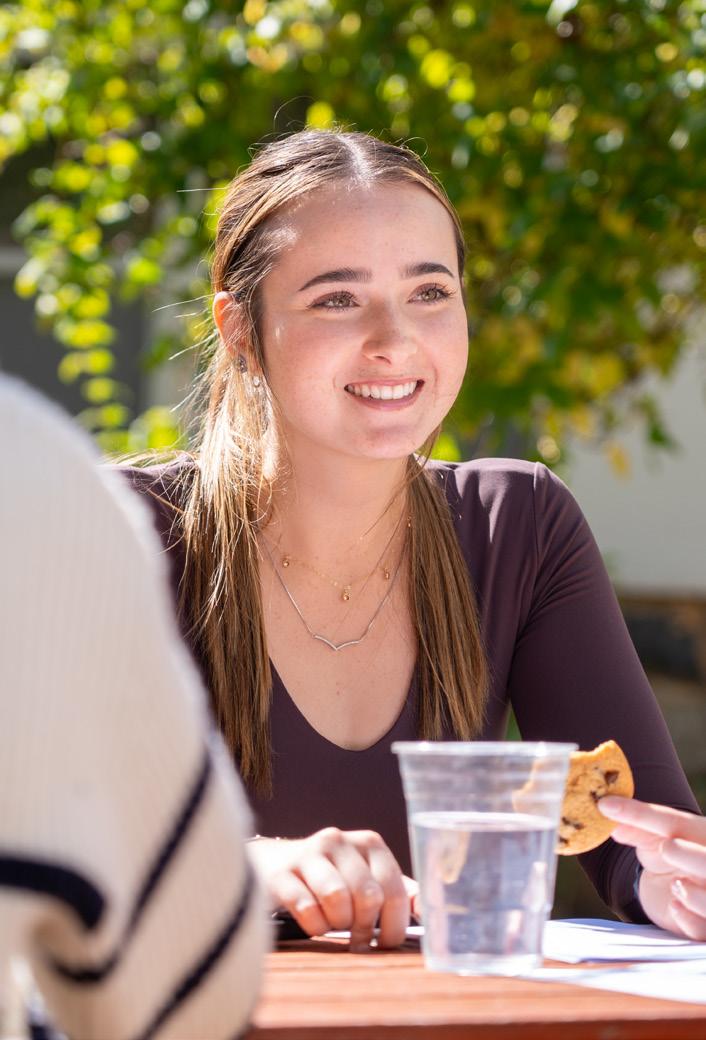
The training, facilitated by ACU’s Safeguarding and Student Safety team, guided participants through a trauma-informed approach to receiving disclosures of sexual assault and sexual harassment. Providers were introduced to the importance of active listening, clear communication, cultural sensitivity, and respect for a student’s autonomy and emotional wellbeing.
Participants explored the complexities of consent, the barriers to reporting, and the nuanced impacts of trauma. Through casebased discussions, myth-busting activities, and evidence-based strategies, the training reinforced that there is no “right way” for a student to disclose—and no assumptions that should be made in how they respond.
Attendees also gained a deeper understanding of bias and intersectionality, learning how unconscious assumptions can affect responses and how to foster more equitable and supportive environments for students of diverse backgrounds and experiences.
Importantly, the training included a comprehensive overview of ACU’s internal reporting mechanisms and support pathways—such as the Safety Support Network, ACU Counselling Services, and external 24/7 services like 1800 RESPECT. Providers were shown how to connect students with ACU’s Safeguarding and Student Safety Team and how to escalate
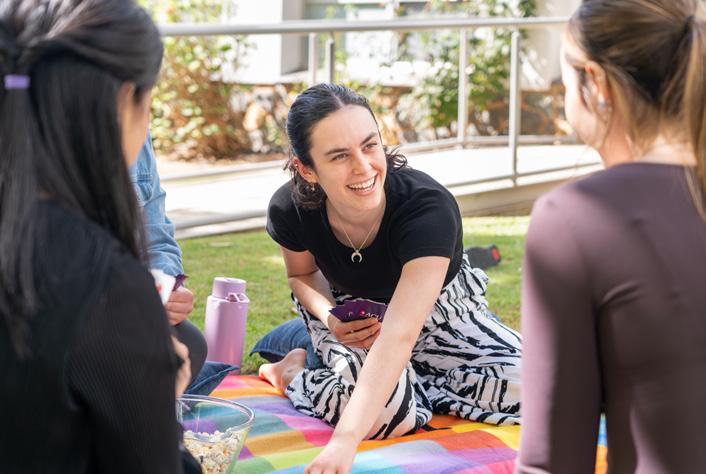
reports appropriately through the National Manager of Student Accommodation.
This clarity enables providers to act with assurance and align their practices with ACU’s protocols—giving students consistent access to safety and support, regardless of where they reside.
With the National Code soon to come into force, this initiative demonstrates ACU’s commitment to not only compliance but leadership in embedding a wholeof-organisation response to genderbased violence. The training provided accommodation providers with actionable knowledge on how to support disclosures, uphold student dignity, and contribute to a university-wide culture of safety and respect.
As a result, all attendees left with a clear understanding of the role they play in a trauma-informed system—and the confidence to respond compassionately and competently when it matters most.
This is partnership in practice— and an important step in changing the story for students.
APSAA offers the only student accommodation specific training programmes in the region. Based on international best practice these are excellent opportunities to upskill.
Register today so you do not miss your spot to upskill and lift your professional journey.
University of Wollongong, New South Wales
December 8-10, 2025

APSAA Student Accommodation Essentials (SAE) is an excellent opportunity for new professionals in student accommodation to gain a broader understanding of the industry. Facilitated by experienced industry professionals, the curriculum will expose participants to introductory concepts around student experience and wellbeing, facilities and operational management. SAE is ideal for new residential life/customer service professionals, or those middle managers who have moved into the industry and want an introduction to industry specific concepts.
Registration includes 2 nights accommodation at Kooloobong Village, all learning sessions and a group dinner on day 2.
University of Queensland, Gatton Campus, Queensland 30 November to 4 December

GATTON CAMPUS
UNIVERSITY OF QUEENSLAND 30 NOVEMBER TO 4 DECEMBER

The Global Housing Training Institute (GHTI) is returning for 2025! Held from Sunday 30 November to Thursday 4 December, at the University of Queensland, Gatton Campus, QLD. The GHTI provides an exceptional professional development experience for advancing professionals. This institute is designed for those with minimum of 3 years working in student accommodation or individuals currently in a middle management role, aspiring to be in a senior leadership role next. With an international Faculty leading the Institute, the comprehensive curriculum will draw on all aspects of student accommodation operations (Residential Life, occupancy, facilities, HR, Operations, current issues and more) with leadership development embedded throughout the week. Brought to you in partnership with ACUHO-I, this is best practice lead learning opportunity.
Registration includes bus transfer from Brisbane airport to Gatton, 4 nights acomm – studant accomm (single rooms) all meals from Sunday afternoon through to Thursday lunch, transfer back to Brisbane on Thursday.
Register now here
Register now here
ESTHER VALMADRE
Engagement Coordinator, Te Whare Tāwharau, University of Otago

In one of the smaller buildings at Ōtakou Whakaihu Waka (University of Otago), some of the biggest work on campus is being done at Te Whare Tāwharau, the Sexual Harm and Intimate Partner Violence Support and Prevention Centre.
Te Whare Tāwharau was created in response to calls from students across Aotearoa and the world at large for university services to meaningfully address sexual violence within their campus communities. The centre was established in 2018, after two years of development where numerous staff and students worked together to define the kaupapa (plan and purpose). The result is a place where staff and students work side by side in their mission for cultural change. Founder and former Academic Director of Te Whare Tāwharau, Melanie Beres, states, “The whole campus approach views both students and staff as being continuous learners and potential leaders.”
Research consistently shows that university campuses worldwide are a high-risk space
for perpetration of sexual violence. While an updated study is needed of sexual violence in tertiary spaces in Aotearoa, we can see in the latest New Zealand Crime and Victims Survey (NZCVS) from the Ministry of Justice that high school and university-aged people (15–29-year-olds) continue to experience the highest rates of sexual violence in the country. Findings from October 2023 show that 56% of 15-29-year-olds experienced sexual violence at some point in their lives.
Recently Te Whare Tāwharau has expanded its name and scope to more explicitly include intimate partner violence (IPV), reflecting the needs of students already seeking support for this harm and our commitment to making that support more visible. Updated statistics are needed on specific age groups, but we know that historically, young adults aged 15-29 years were twice as likely to experience offences by family members, including intimate partners (NCVS, Cycle 2, 2018/19). Research has also shown that Māori experience almost three times more
IPV incidents than the national average, and 35% of wāhine Māori have experienced at least one IPV offence in their lifetimes (NZCVS Cycle 4, 2020/21). Women in the Rainbow community are also more likely to experience IPV in their lifetimes – 44% of rainbow women have experienced IPV at least once. For bisexual women the rate is higher at 50% (NZCVS Cycle 5, 2021/22).
“To describe the importance of the centre feels wrong, as it almost assumes there might be any reason as to not have it - which I don’t believe there is,” shares Esprit Fairbrother-Lee, a former Peer Support Volunteer at Te Whare Tāwharau. “I believe Te Whare Tāwharau is fundamental to creating a safe environment, and that every organisation should have an equivalent. To describe the effect of the centre as positively beneficial, not only for those directly accessing it, but also the University and wider communities, would be a vast understatement. It is proactive, culturally responsive, empathetic, evidencebased, connected – the list goes on.”

The first and only centre of its kind in Aotearoa, Te Whare Tāwharau has grown into an integrated support and prevention service embedded within the university. The centre is survivor-led, guided by Te Tiriti o Waitangi and welcoming of students and staff of all genders, sexualities, ethnicities and abilities. Te Whare Tāwharau (pronounced Teh Fa-reh Taa-fa-row) is the centre’s gifted ikoa Māori (Māori name), which means ‘the place of shelter’. It is – above all else – a place of shelter for survivors, for supporters and for anyone feeling the effects of sexual harm, be they recent, historical or ongoing.
Operating within a survivor-led framework means listening to a survivor’s needs and allowing them to control the situation. Staff and volunteers at Te Whare Tāwharau can offer guidance and information about further support services and reporting processes to help inform these decisions. The first step is listening to and believing the survivor.
“In a society that still prefers survivor silence, it is important to create space for survivors to express themselves and choose their own path,” shares Ella Sangster, a current Student Facilitator at the centre. “Young people at university are at an increased vulnerability of experiencing sexual harm. The centre, to me, exists as a central place of specific advocacy that is crucial to community harm reduction. It is also about educational equity. The impacts of sexual harm can last a lifetime and touch many different aspects of someone’s daily experiences, including study. It is important that there is a place for survivors to seek support while they are at university.”
Borne out of that initial call-to-action, student voice and perspective remain central to the space, with peer supporters and student facilitators working alongside centre staff. Though full training is provided, it’s the unique experiences, understanding and manaakitanga (kindness/support) that these tauira (students) bring to Te Whare Tāwharau that makes their contribution so invaluable.
“There was really an amalgamation of things
which drew me to contribute to the mahi at Te Whare Tāwharau,” says Esprit. “In my first year, I had incredibly challenging experiences surrounding sexual violence and was blessed to have the service offered to me. Following this, I knew I wanted to do the same for others. It wasn’t until 2024, when I was on Thursdays in Black* Otago executive, that I began my role as a peer supporter. To put it simply, I wanted to be a part of positive change and I wanted to ensure I could do this in an ethical way. I was already raising awareness and advocating in my media executive role, so to receive training that would allow me to provide evidence-based, person-centred support was an amazing opportunity.
“It feels rather dissonant to be speaking of sexual violence support and ‘amazing’ in the same breath, given it follows that I would be faced with some pretty harrowing experiences. However, those experiences have happened, regardless of if I were to have supported someone who experienced them, or not. Thus, I felt fortunate to have the chance to provide a safe, confidential space for another survivor.”
Peer supporters give their time to the centre by joining staff during walk-in hours. They welcome anyone that visits and are trained to provide support up to a certain point. Student facilitators are employed each year to deliver prevention workshops, the most mammoth effort being the CommUNIty102 series that is presented to all incoming college residents during their first few weeks at university (approximately 110 workshops delivered). In this workshop, facilitators and students work together to unpack and better understand consent. They look at healthy relationships, what makes a safe community and think about how alcohol fits in to all that.
Throughout the year student facilitators also deliver HYBRID (Helping You the Bystander Respond, Intervene and Disclose), a workshop developed for student leaders, including Kaiāwhina (student sub-wardens), club/ association executives, demonstrators
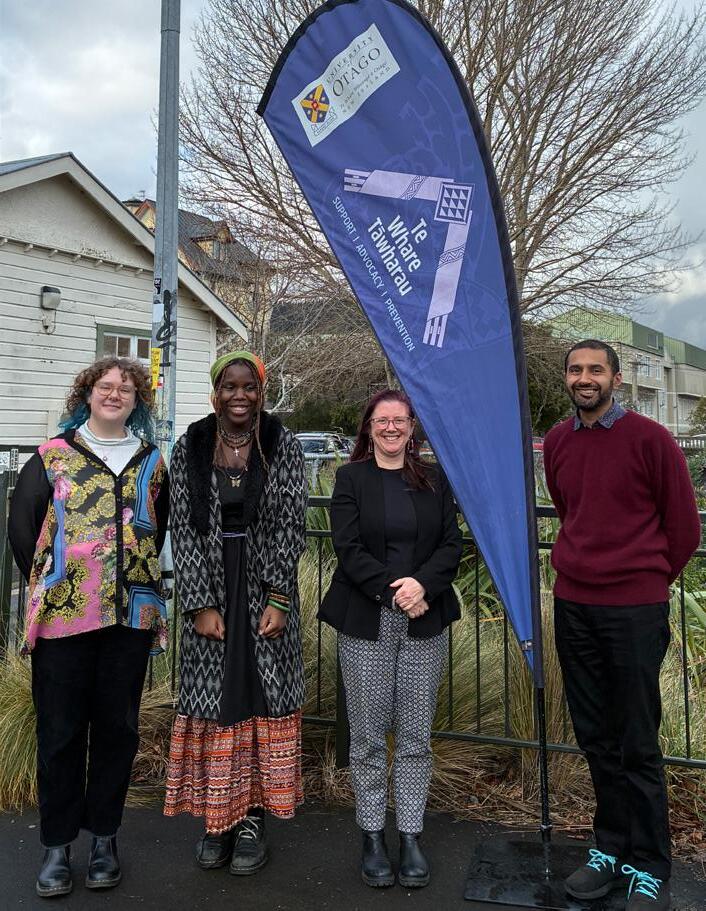
and tutors. HYBRID is also delivered by Te Whare Tāwharau staff to colleagues around the university in student-facing services, such as the Campus Watch team. This workshop is designed to empower attendees to be effective bystanders in their communities; to recognise potentially harmful situations and how to intervene safely; and prepares them with skills to respond using survivor-led practice if someone discloses their experiences of sexual violence.
“Doing workshops, we work with students from a variety of cultural backgrounds and walks of life,” says Ella. “There is especially a lot of tough feelings, stigma, and shame sometimes in speaking about sex and sexual harm, for a variety of reasons; gendered expectations, cultural beliefs, or even family values. I find it really rewarding when I’m able to read the room and interpret students’ needs to give them a more impactful and meaningful workshop, tailoring the content to get the key themes across and empower them to take action in their own lives.
Sexual harm as a student issue is a difficult sub-portfolio, the nuance
it requires is well worth having a dedicated team who can do it well.
“It has also been interesting to see current student leadership (OUSA) use models and teachings from Com102 and HYBRID to inform how they take action and conceptualise debates around student culture. That Te Whare Tāwharau’s models have become a touchstone between students shows the cultural significance that the centre has made. Without the support aspect of the centre and community outreach programs, I am not sure the OUSA would be having as open discussions around sexual harm and student safety as they have been having recently.”
As Ella explains, the issue of sexual violence is a challenging and often uncomfortable one to talk about. For students to be able to hear from their peers is a powerful demonstration to incoming students that their new community is actively addressing sexual violence.
“The effects of Te Whare Tāwharau were incredibly widespread,” says Esprit. “First-year education on consent, research incentives, community engagement, giving students a sense of acceptance and belonging. I have seen several students walk into the centre in complete distress and hopelessness, to later see them achieve exceptionally in academics, professionally, in their relationships and general wellbeing. I have witnessed the weight lift off the shoulders of a survivor or a supporter of a survivor. To go from sobbing, to smiling, after a support session, holding a Te Whare Tāwharau contact card. Not only students at Otago, but staff, whānau, and the wider Dunedin community.”
Sexual violence is a widespread and complex issue in university communities. As such, it requires a purposeful and specialised response. Te Whare Tāwharau works closely with other services on campus such as Student Health, Disability Information and Support, Te Huka Mātauraka (Māori Centre), and the Pacific Islands Centre as well as the Otago University Student Association (OUSA) Student Support and Queer Support

groups. There are many reasons that a survivor may access these services first. With Te Whare Tāwharau available, these other support providers can refer students with confidence that their experience as a survivor is at the heart of the centre’s work.
“Having been on both sides of the service, it remains incredible and I cannot comprehend how it is not a required aspect of tertiary institutions across Aotearoa,” says Esprit. “I would recommend that Te Whare Tāwharau expand to become a permanent structure within all Aotearoa tertiary settings; that universities work on creating space for this service and physically coming to Dunedin, immersing themselves in all the learning/ advocacy etc. to then establish Te Whare Tāwharau nationwide. Also, taking into account the diverse demographic needs/ prevalences in their unique institutes. Additionally, I believe there is advantage to be taken from the centre at a nationwide level – in terms of policies, societal norms, health/ wellbeing, and resource access & availability.”
Working towards cultural change is no small endeavour. Being embedded in a university gives providers of this service the unique opportunity to engage with young people
when they are learning, challenging their own beliefs and exploring how to hold each other accountable. Not only is it essential that we address the historically under-supported issue of sexual violence in universities, but it is important that we take this opportunity to meaningfully engage with students.
“Be curious about your student body and listen carefully to what they tell you,” says Ella. “Every university campus has a different personality and values, and it is important to work with students to create cultural change. Figuring out where to lean into student culture and when to lean out is crucial for meaningful engagement and meeting students where they are, not where you might be as a service provider.”
*Thursdays in Black is a student-run national campaign aimed at preventing and responding to sexual violence in tertiary spaces.
Sources: Beres, M. A., Treharne, G. J., & Stojanov, Z. (2019). A whole campus approach to sexual violence: the University of Otago Model. Journal of Higher Education Policy and Management, 41(6), 646–662. https://doi.org/10.1080/1360080X.2019.1613298
Ministry of Justice, New Zealand Crime and Victims Surveys (2018-2024). https://www.justice.govt. nz/justice-sector-policy/research-data/nzcvs/

The Asia-Pacific Student Accommodation Association (APSAA) is proud to spotlight the next phase of the Residential Experience Standard (RES) — a global accreditation program designed to transform the way providers measure, benchmark, and improve the lived experiences of students.
Following the successful pilot, which included 3,285 student participants across 46 properties, RES has rapidly gained momentum, with more institutions preparing to undertake the standard in 2025. The initiative, delivered in partnership with Investor in Students (IIS), offers sector-wide benchmarking, in-depth reporting, and real-time dashboards, empowering providers to make evidence-led improvements based on verified student sentiment.
A Global Benchmark, Rooted in Student Voice
With a membership now spanning over 40 institutions across Australia, the UK, Ireland and Europe, RES is setting a new benchmark in accommodation standards by:
• Measuring across five core pillars including personal safety, community, and personalised experience
• Capturing feedback from students, staff, and senior management for a full 360° view
• Awarding Gold, Silver, and Bronze accreditations supported by actionable improvement plans
“We’ve seen remarkable insights surface from the RES pilot cohort,” says Rhys Thomas, Director of IIS. “From student feedback on mental health to perceptions of belonging and academic support, the standard doesn’t just audit services — it accelerates progress.”
Headline Stats from the First Wave
• 6.9% of students reported experiencing hazing; 70% said incidents were not adequately handled by staff
• 7.3% reported witnessing sexism; only 26% of those incidents were witnessed by male students
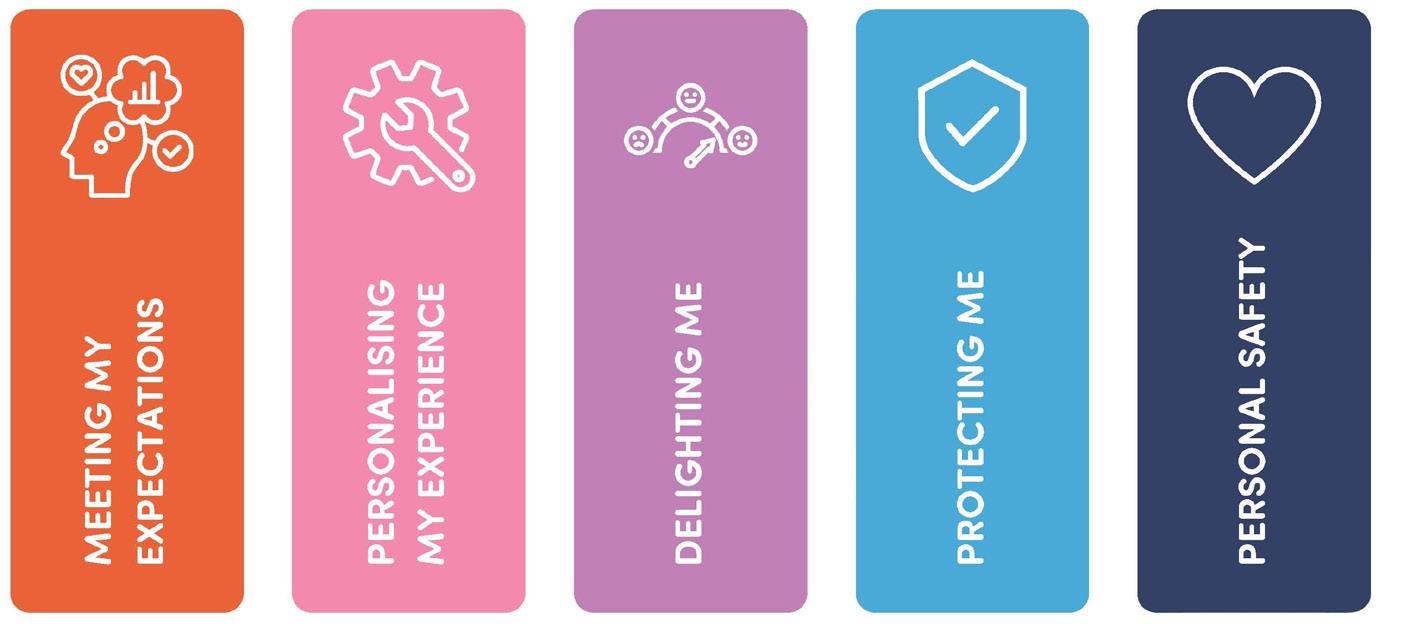
• Students who reported incidents showed higher satisfaction with support services — a clear call to improve disclosure environments
• Australian providers outperformed UK counterparts in belonging, academic support, and wellbeing
“These findings aren’t just numbers — they’re a mandate,” added Tom White, Co-Founder of IIS. “We’re seeing clear evidence that RES drives meaningful change at both an operational and cultural level.”
APSAA is excited to see more of its members join this global movement as the next wave of RES begins. With data-led insight, live dashboards, and benchmarking against over 170,000 students globally, RES offers participants a roadmap to excellence.
“We encourage all providers to take part,” said Jacob Waitere, APSAA President. “This isn’t just about accreditation — it’s about unlocking a new level of transparency, action, and student-centred care.”
Media Contact:
Rhys Thomas – Director, Investor in Students / RES rhys@investorinstudents.org
Tom White – Co-Founder, Investor in Students / RES tom@investorinstudents.org
APSAA National Office +61 3 9586 6055 office@apsaa.org.au
RespectX has quickly become the partner of choice for University Residential Colleges to manage all behavioural concerns across the whole community - from gender based violence, workplace safety and wellbeing needs. RespectX is a modern, trusted reporting channel backed up with best practice case management and powerful analytics.
“RespectX is a no-brainer. The reporting and Case management functions are phenomenal. This is the leading approach to the prevention of misconduct”
Rose
Alwyn, CEO, St John’s College, UQ
What good looks like
RespectX is operating in over 20 independent residential colleges, and counting. The “RespectX colleges” are already leading the way in their pursuit of safe and respectful communities. Prevalence of sexual harassment is nearly half that of the university accommodation sector overall (10% compared with 19% NSSS, 2021). And 98% of students and staff agree or strongly agree that their leaders are serious about creating a safe environment.
But without a safe, simple way to come forward early, many incidents were still not being reported. Only 8% of people who experienced harm came forward. This is where RespectX is changing the game.
We ask residents why they didn’t speak up, and the answer is usually some version of:
• “I didn’t think it was serious enough”
• “I didn’t want to overreact”
• “I didn’t want anyone to find out”
RespectX addresses every one of these barriers — by design.
• Mobile-first and fully accessible
• Anonymous encrypted chat with two-way communication
• Step-by-step, trauma-informed prompts that help people describe their experience — even if they’re unsure how
• Integrated support pathways to connect students to help without friction.
No legal language, no judgement, no barriers or irrelevant questions - just the support they need to find the words and get help. That’s what “safe and simple” really means. And it works.

Sally Calder Co-Founder and CEO sally@respectx.com.au

Dr Shey Newitt Co-Founder and CPO shey@respectx.com.au
“RespectX’s simplicity puts it head and shoulders above the system we’d been using. And the ability to talk to anonymous reporters is a game changer.”
James Hardiman, Principal, St Hilda’s College, UoM
It is not enough to have a reporting channel in place. People need to trust the process and the people that sit behind it. With RespectX, residential colleges have seen a remarkable shift in the ability and confidence of their staff to manage the whole range of concerns - from informal behaviours, to wellbeing requests, and onto more serious formal investigations.
“If a formal report comes in, I know I’ve got the guidance and support to work through it in a trauma-informed way.”
Luke Richardson, Director of Academic & Career Development, King’s College UQ
Case managers are trained and have access to:
• Step-by-step workflows that align with National Code and WHS and Respect@Work obligations
• Training tools and a knowledge bank to build capability
• Real-time dashboards that surface issues early
• Support for consistent, trauma-informed decision-making
Nearly everyone would make a report if they experienced bad behaviour
Almost all respondents are confident using RespectX to make a report
A large majority either agree or strongly agree that RespectX will have a positive impact on culture
RespectX is delivering breakthrough engagement and trust outcomes in residential colleges:
These numbers are 10x higher than national averages — and show that when students feel safe and supported, they will speak up.
RespectX Colleges are well ahead of the game in preparation for the National Code. RespectX gives them a safe reporting channel and processes, knowledge and insights, and data and analytics to immediately comply with 4, 5, 6 & 7, and support compliance with 1, 2 and 3.
And smart colleges are using RespectX for all concerns: workplace health and safety, positive duty, and wellbeing and pastoral care issues. RespectX is now the central reporting and case management platform for everything that makes community life work.
As more colleges adopt RespectX, affiliated Universities are seeing the benefits of a consistent, unified and simple experience for staff, students, leaders and regulators — and they’re beginning to act. This shift is happening now — and colleges are leading the way.


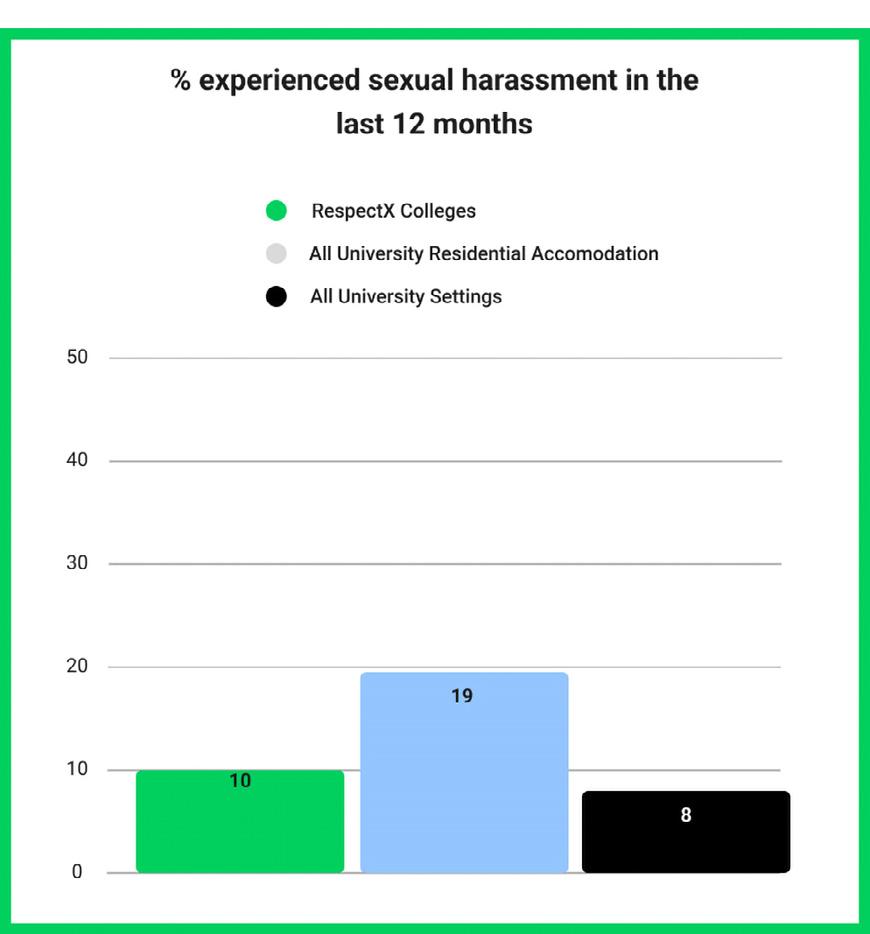
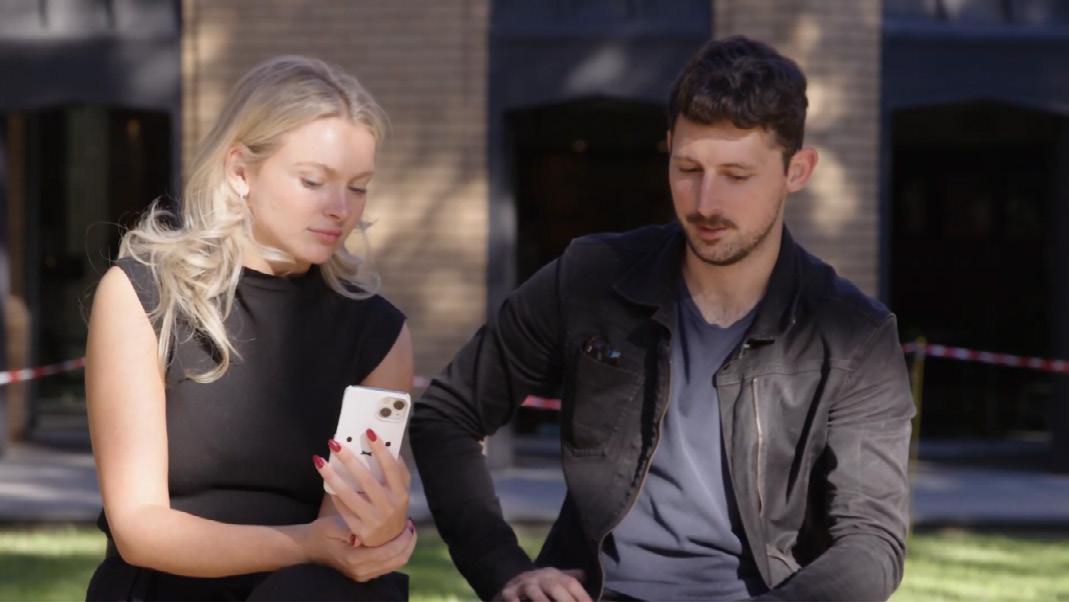

Duchesne College is located on the grounds of the University of Queensland overlooking UQ Lakes. A fortunate position not only offering the opportunity for student sleep-ins, being so close to the university, but also a quiet and calm environment allowing space for self and the journey of university and college life to come to fruition.
Duchesne College was envisaged by Archbishop Duhig in 1936 to support young women engage with university studies. Drawing inspiration from the legacy of St Philippine Duchesne, the college was named Duchesne College. 1937 saw the college established at Stuartholme, later moving to New Farm in 1947 and St Lucia in 1959, reflecting its evolving role in the educational
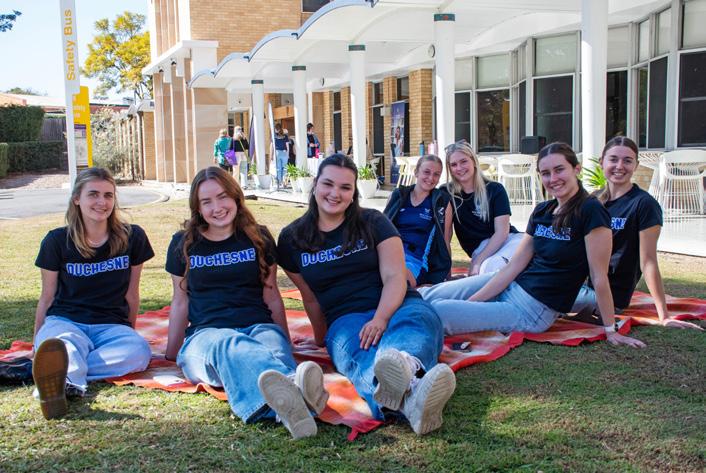
landscape. Today the college welcomes 215 students from a range of backgrounds, including regional, rural and international students, within an environment where a sisterhood is created “leaving no girl behind”.
The Catholic goals of the Sacred Heart form the foundation of our vision and serve as a compass for those opportunities provided to students. At Duchesne our

ANNETTE PRIEST Director of Student Life Duchesne College

vision is to inspire personal growth within an inclusive, socially aware community that is impelled to act. Through this, students are provided a safe environment of holistic development, providing opportunities to reflect and empower, and gain strength through the valuing of diverse communities in an increasingly complex world.
Duchesne College has a strong sense of community that is not only supported by our architecture, but by our students within it. In 2023 we revised our Resident Student Leader structure resulting in a 24/7 non-student support model of Resident Support Officers and Community Support Officers. Student Community Leaders (CL) were created being our hub for driving college culture, inclusion and supporting college families. Student-led messages of gratitude and wellbeing are prominent in the hallways, alternate social activities are held for those quiet nights in, students have family dinners and gatherings, highlighting the strong sense of safety, connection and belonging. The revised structure has allowed our CLs to solely focus on building genuine connections with students, enhancing our culture of care. Once you are in the entry doors of Duchesne, you are in your home.
The transition to university and College life is a critical period in shaping student success. We focus on students’ strengths and foster an environment that supports their growth by facilitating a range of experiences that contribute to personal and professional development. Academic support, leadership
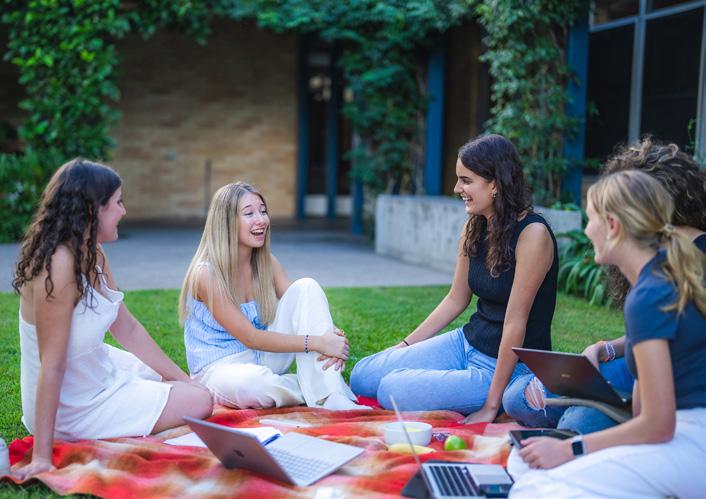
opportunities, career and networking opportunities, social activities, and cultural engagements are integral parts of the student experience. These initiatives provide students with the tools to develop soft skills essential for a professional working world, while also promoting their personal growth.
Through these programs, we encourage students to explore new experiences and to embrace their authentic selves. This approach not only supports their wellbeing and academic achievement but also cultivates the personal resilience and leadership qualities necessary to thrive in an ever evolving global landscape.
Through the goals of the Society of the Sacred Heart and the work of St Phillipine Duchesne, Duchesne College promotes social justice

and equity for young women to engage with university studies through the provision of 33 residential bursaries and scholarships. We actively seek opportunities to develop our scholarship base to allow more women from regional, rural or humanitarian backgrounds, to access a safe residential environment while pursuing university studies. Being part of a vibrant learning community, where diversity and opportunity is valued, enriches our lives and learning.


The National Higher Education Code to Prevent and Respond to Gender-based Violence (GBV) has provided the opportunity for us to audit what structures we have in place and opportunities for development. Utilising UCAs National Code Health Check has been invaluable in this process, assisting to highlight key components and clearly identifying those operational aspects for consideration. It has also highlighted what we are already doing well, which provided reassurance that we are well positioned for the National Code to come in place.
Our continued workings in this space include reviewing key policies and procedures in alignment with the Code, incorporating an online reporting platform into our procedural space and curating opportunities for increased learning for our students in relation to GBV. Our students already undertake mandatory learning delivered by the UQ Respect team in Welcome Week, with continued dialogue throughout the year including management aspects of event planning.
Our students come from multiple universities which does increase complexity however, the importance of building collaborative working partnerships with universities will assist in resolving this. We have already reached out to universities to connect and share resources and process. We will re-engage with these universities to collaboratively consult in relation to our documents and process, ensuring clarity of information and support provisions.
Duchesne College traditionally has a social conscious born from St Philippine Duchesne and the Goals of the Society of the Sacred Heart that still burns today. It is a college that resonates a warmth, a sense of calm, community and connection. It is a space where young women can be themselves, be empowered and become leaders to make change. A place where you can live, grow and flourish.
ITAI AVISAR
Campus Life Officer
Deakin Residential Services
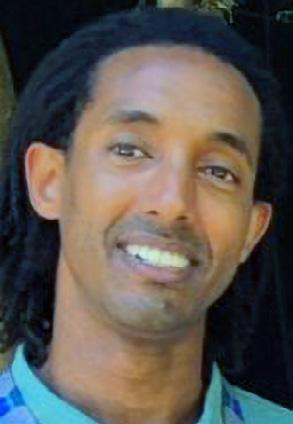
Living on Res is a unique chapter in a student’s life. It’s where they start figuring things out, making friends, learning how to live with others, and navigating a whole lot of change all at once. But it’s not always smooth sailing. For some, the transition into Res life can feel overwhelming, especially when they’re dealing with anxiety, past experiences, or ongoing mental health challenges. That’s where support animals can play a really important role.
Deakin Residential Services recognises the significant role assistance animals play in helping individuals with disabilities navigate daily life. We acknowledge that people with a disability have the right to be accompanied by a trained assistance animal in areas where animals are generally not permitted, including student residences.
That said, bringing an animal into a shared living space comes with its challenges. DRS conducts a suitability assessment to ensure that any resident or prospective resident requesting to live with an assistance animal is placed in accommodation that can appropriately support both the individual and their animal. This includes consideration of the resident’s needs, the wellbeing of others, and the nature of the available accommodation, in line with our Assistance Animals Policy.
Only fully trained assistance dogs, or those currently enrolled in a recognised training program are considered for approval. Emotional support animals do not fall under the same legal protections. Accommodation suitability, health and safety, and the wellbeing of all residents

are carefully considered throughout this process. It’s a fine line to walk, and getting it right means having clear processes, setting expectations early, and making sure everyone’s on the same page.
If approved, clear expectations are set, such as the animal remaining under the resident’s control at all times, maintaining hygiene, minimising noise, and ensuring the resident cleans up after the animal. All approved assistance animals are recorded in StarRez, along with a photo and relevant accreditation documentation.
We’ve seen some really positive outcomes from students who’ve had assistance animals approved. One resident told us that having
her dog with her was the only reason she felt she could stay on Res. It gave her a sense of comfort she couldn’t find anywhere else. We’ve also found that support animals often help spark connection. Whether it’s someone stopping for a quick pat or starting a conversation, they can help build a stronger sense of community around them.
At the end of the day, our role isn’t just about giving students a place to live, it’s about supporting them to feel safe, settled, and able to grow. And sometimes, that means looking at support a little differently. Assistance animals won’t be the right fit for every situation, and there can be challenges, but when it works, it can make a real difference for that student.
At the Australian National University (ANU), student wellbeing and community safety remain core priorities within our residential accommodation environment. As part of our ongoing commitment to fostering safe, inclusive and respectful communities, ANU has implemented since 2023 an Accommodation Declaration as part of our application process for all students seeking to live in university-managed accommodation.
This declaration process required close collaboration with our Legal Office to ensure the process was not only robust and lawful, but also transparent and respectful of privacy. We encourage anyone who implements a similar initiative to engage with your Legal Office early.
The Accommodation Declaration is designed to assess an applicant’s suitability to live in a communal residential setting. It requires disclosure of any criminal convictions, pending charges, or unspent convictions, specifically in relation to three categories:
• Sexual offences, including sexual assault, sexual violence, and sexual harassment (involving either adults or minors);
• Serious violence or assault, such as grievous bodily harm, domestic violence, or offences resulting in manslaughter or murder;
• Stalking, harassment or bullying , whether in-person or online.
Applicants are required to disclose information from the earlier of:
• The date they turned 18 years old; or
• The date they accepted an academic offer and enrolled as a student at the University.
Importantly, the information provided is treated with a high degree of confidentiality and is not shared with any other area of the University or external entity, subject to applicable laws. Further detail around how the declaration is assessed and how privacy is protected is provided to students as part of the application process.
A confidential and transparent appeal
Are you looking for staff?
The APSAA Jobs Board is a fantastic, FREE service available if you have a position to fill. Institution and Corporate members can post Job Opportunities to this page, and access is open to all job seekers.

https://www.apsaa.org.au/member-resources/job-opportunities/
process should also be developed as part of any such initiative.
Since its implementation, the Accommodation Declaration has not faced negativity from students and it was a key action completed as part of the 2022 ANU Student Safety and Wellbeing Action Plan. When tested with a sample group of students, the inclusion of the declaration was positively received, and has been supported by the Student Safety and Wellbeing Sub-Committee of ANU Council. Students shared that simply having the question in the application helped them feel safer about entering the residential environment. This response reinforces the value of clear, transparent safety measures in supporting the wellbeing of our communities.
For those considering similar measures, the ANU experience highlights the importance of legal collaboration, clear communication, and a student-centred approach in the development and integration of such declarations. In our context, it has proven to be a constructive and well-received addition to our residential application process.

Electric scooters and bikes have become increasingly popular in urban areas, offering an eco-friendly and convenient alternative to cars and public transport. For many apartment dwellers and student accommodation settings, these personal electric vehicles (PEVs) are a practical way to navigate congested city streets and reduce commuting time. However, their rise in popularity has introduced a number of challenges for apartment residents and accommodation providers alike.
One of the most immediate and visible problems is storage. Apartments often lack the space needed to securely store an e-scooter or e-bike. Residents frequently end up leaving their vehicles in hallways, stairwells, balconies, or even inside their living spaces. This not only creates clutter but can violate fire safety regulations and building codes. Storing these devices in shared areas may block emergency exits or create tripping hazards, raising concerns for both tenant safety and building liability.
Another major concern is battery safety. E-scooters and bikes are typically powered by lithium-ion batteries, which have been known to overheat or catch fire, especially when damaged or charged improperly. In recent years, there have been several high-profile apartment fires linked to malfunctioning e-vehicle batteries. These incidents have prompted some buildings to implement strict rules around charging, with student accommodation settings moving to prohibit the storage of any e-scooters or bikes inside the buildings and apartments. There is a lot of talk around infrastructure and the ongoing demand for PEVs.
To address these issues, some high-density living areas are beginning to adapt by offering designated storage areas, charging stations,
or secure bike lockers specifically designed for e-vehicles. However, these solutions require investment and may not be feasible for older buildings or smaller complexes.
UniHall, along with the University of Western Australia sustainability team, are already looking at on-campus solutions for e-charging of cars as well as PEVs as they recognised the increased risk residential colleges face due to high-density living.
They first identified the lock up bike shed as a potential site, however, this was later discounted due to its proximity to buildings, as was a retrofit of the smoking shed due to access and security issues. Several onsite meetings, presentations by Fire & Emergency Services, and the UWA Safety Team resulted in the identification of a location that not only met the safety measures required but also positioned the UniHall Hub as one that could be a shared resource across the five colleges that constitute College Row at UWA.
Currently, UWA has finalised a conceptual design and cost estimates and is working on a business case to release the budgeted funds for the project, with Hunk Hall a priority.
As a result of the ongoing concerns with PEVs, may high-density apartments and student accommodation facilities will list these items as prohibited on campus and as such, this will be outlined in Residential Handbooks and/or policies for safety reasons.
RACHAEL GIBSON
Campus Life Coordinator, Deakin Residential Services
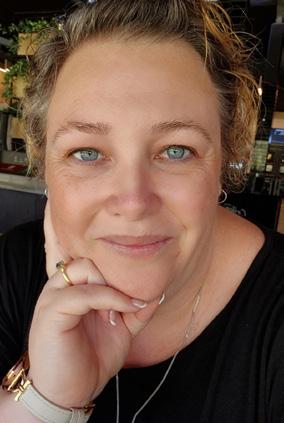
What UniHall have done to combat these changes, in the interim of the new facilities, is update their clauses in their Handbook to highlight the potential danger of storing and charging PEVs in their room. They have asked residents to register their PEV with UniHall and have recommended the following mitigating measures:
1. Using a timer which will be provided by UniHall
2. Only charge during the day and while you are present in your room; and
3. Never charge overnight
4. Damaged equipment or chargers are not to be used.
This is also supported by visual reminders on their digital screens, noticeboards and via their APP.
While PEVs, like e-scooters and e-bikes, offer considerable benefits in terms of sustainability and convenience, they also introduce real concerns in high-density environments, from fire risk and storage, infrastructure and cost. The growing presence of personal electric vehicles in apartments requires clear communication between residents and landlords while also needing to be a forethought for future development in an ever growing and changing world away from combustible engines to more sustainable transportation.
“While e-scooters and e-bikes offer sustainability and convenience, they also introduce real risks in high-density student accommodation – from fire safety to storage and infrastructure challenges.”
As medicinal cannabis becomes a more common treatment option in Australia, staff working in student accommodation are increasingly likely to encounter residents who are legally prescribed this controlled substance. While its medical use is lawful, the presence of medicinal cannabis in a communal living environment raises important considerations for compliance, safety, and resident wellbeing.
This guide outlines key responsibilities and best practices for accommodation staff supporting students who use medicinal cannabis.
Medicinal cannabis is legally available in Australia via prescription from an authorised medical practitioner. It may be used to manage a range of conditions including chronic pain, anxiety, PTSD, and insomnia. However, because it is classified as a controlled substance, strict legal and institutional protocols govern its storage, use, and disclosure— especially in shared living spaces.

1.
• Residents prescribed medicinal cannabis must disclose this to accommodation management prior to bringing it on campus
• Staff should ensure that residents understand they need to submit a Medical Practitioner Report completed by their GP.
• Approval must be granted by Student Living (or the appropriate authority) before the medication is allowed on site.
Tip for Staff: Create a confidential, compassionate process for students to disclose medication use, and refer them to the appropriate documentation channels.
Once a student is approved, the following conditions apply:
• The medication must be kept in its original pharmacy packaging
• The student must use the medication as prescribed, and only via approved consumption methods (e.g. oral or oil-based; vaping or smoking may be prohibited indoors).
• Sharing or selling medication is illegal and grounds for serious disciplinary action.
Staff Action: Conduct routine checks for compliance (if applicable), and remind students of storage and usage expectations in welcome briefings or health and wellbeing meetings.
3. Handling Misuse and Misconduct
If there is evidence or concern that a student is misusing their prescribed medication—such as overconsumption, unsafe storage, or sharing with others— this may trigger a misconduct process under the Student Conduct Rule.
JESS ROKOBARO
Acting General Manager, Senior Manager, Business Support, Student Living, Academic Division University of Newcastle

Staff Guidance: Report incidents through your internal misconduct protocols. Maintain confidentiality, but ensure risks to health and safety are prioritised.
4. Managing Deliveries and Liability
Some students may have medicinal cannabis delivered via an on-campus pharmacy. Accommodation teams should be aware that:
• Medications will only be handed directly to the addressee (the student).
• The university or accommodation provider accepts no responsibility for any lost, damaged, or unclaimed medications.
Staff Reminder: Log deliveries carefully and ensure medication is only handed to the correct resident. Avoid storing any unclaimed prescriptions in shared or unsecured spaces.
Creating a Supportive and Compliant Environment
As student accommodation professionals, our role is not to police medical decisions—but to ensure a safe, respectful, and legally compliant community. Balancing empathy and policy is key.
Encourage open communication with students needing support.
Maintain clear records of disclosures and approvals (confidentially).
Work closely with Student Services and Health & Wellbeing teams to coordinate care and responses to incidents.
The presence of medicinal cannabis in student residences is a reality of modern student life. With proper procedures, proactive communication, and clear boundaries, staff can support residents while upholding safety and compliance across the community.
Since the legalisation of recreational cannabis in Canada in 2018, many universities and colleges nationwide have adapted previous policies governing its use within campus residences. While these policies vary across institutions, they generally aim to comply with federal and provincial laws, prioritise community health and safety, and accommodate medical needs. In discussing this issue with current student life and campus housing leaders one common refrain came through even if campus specific policies are different and that is that marijuana has become a far lower priority concern because legalisation has had minimal impacts. Other drugs – “harder drugs”, synthetics, fentanyl (itself or other things being contaminated with it), and unknown drugs have become much more of a concern.
1. Smoking and Vaping Restrictions
Most campuses have prohibited smoking or vaping cannabis in all campus areas, including residences. This aligns with broader smoke-free campus initiatives and public health guidelines. Very few campus housing facilities have allowed smoking of any kind, beyond approved ceremony, indoors. It is also becoming more common for entire campuses to become “smoke free” – including cannabis and vaping.
The link (left) takes one to a report outlining the various “smoke free” campuses across the country. Being “smoke free” makes the vaping and smoking of cannabis against policy as a result of the act of smoking regardless of legality and is rooted in health promotion and increasing comfort levels for the vast majority who are nonsmokers as well as campus beautification.
2. Possession
Students aged 19 or older are generally allowed to possess up to 30 grams of dried cannabis in residences, provided it is stored securely and in scent-proof containers. However, the use of cannabis paraphernalia is often restricted. Listed below are some typical policies for possession and storage of dried cannabis – note that as with most campuses, smoking in the building and often on the campus is not permitted for any substance. For instance:
• University X: Possession of cannabis is allowed in residence for those 19+, but it must be stored in an air-tight container. Paraphernalia like bongs and vapourisers are permitted but must also be stored properly.
• College Z: All cannabis products and paraphernalia must be stored in a way that prevents odor; smoking cannabis in residence can result in a $250 fine.
The above are actual policies from campuses with significant student housing populations. Not all campuses use a fine system due to its tendency to be an unequal deterrent for students based on their access to funds.
3. Consumption Methods
While smoking and vaping are commonly banned, some universities permit nonsmoking consumption methods within private residence rooms. For example, University X uses a very similar policy to other campuses in that it allows non-smoking consumption for students over 19 in private residence rooms.
Prevention related to consumption via regulations was seen as the trickiest concept for campus housing leaders. Creating a no-use policy is fine and these do exist in Canada but the enforcement of such a policy is near impossible. When smoking cannabis was the primary means of consumption it was relatively simple by detecting the smell and the tell-tales of a wet towel under the
MIKE PORRITT Chief Development Officer – UniLodge Canada

door and open windows in a Canadian winter. Now that smoking anything is widely barred and preferred consumption methods often do not involve smoking and the possession is legal within limits – that detection method no longer applies. The only detection method that could work now is “catching people” in possession or in an altered state – both of which increase the police perception of residence staff, especially dealing with something that is now legal.
4. Delivery
Universities typically prohibit the delivery of cannabis products to campus addresses and the cultivation of cannabis plants within residences. Cultivation is a high energy use activity beyond the issues of growing to sell. It is not uncommon for a campus to not allow recreational cannabis products to be shipped to campus, including residences. Explanations for this policy included preventing (as much as possible) means for illegal distribution, non-approved and regulated sources, and to avoid maintaining high value items at the front desk or in delivery lockers that may increase the possibility of theft.
Most institutions have long provided accommodations for students with medical cannabis prescriptions, handled on a case-by-case basis through accessibility or health services. Depending on the campus, this can be arranged through the use of space on campus in general and often within campus residence. These policies have been around far longer than the legalised possession and use policies.
Canadian universities have adopted comprehensive policies regarding cannabis use in residences, focusing on health, safety, and legal compliance. While possession of cannabis within legal limits is generally permitted for students
of legal age, consumption methods are often restricted, especially smoking and vaping. Accommodations are available for medical cannabis users, and students are encouraged to familiarize themselves with their specific institution’s policies to ensure compliance.
As mentioned earlier, the bigger push related to drugs in Canadian higher education has not been related to cannabis after a year or two of adjusting to the new regulations. The bigger concern, by far, is the use of non-regulated, unsafe, and unknown drugs by students. Fentanyl gets the most publicity and can be used by itself or it can be laced (knowingly or unknowingly into other substances).
Opioids in general are also a great concern. These can be illegally sourced or they can be obtained via prescription and abused by the person with the prescription or distributed to others. Canadian campuses have increasingly adopted harm reduction strategies to address substance use among students, shifting from punitive approaches to supportive, health-focused interventions. These policies aim to reduce the negative consequences associated with drug use, particularly in the context of the ongoing opioid crisis and fentanyl use/exposure in any form.
1. Naloxone Accessibility and Overdose Response
Many universities have made naloxone kits widely available on campus to counteract opioid overdoses. It is common for campuses to instal naloxone nasal spray boxes throughout its campus, including in student residences, and offer training sessions for students, staff, and faculty on recognising and responding to overdoses. The training and knowledge of naloxone kits is an increasing focus on campuses across the country with an increased focus in certain regions as there have been deaths on and off campus with students. The nasal spray is relatively simple to train students how to use and there is an injectable format that certain staff members can be trained on as well. Access to the kits has been a focus on campuses.
Inquiries done by the various levels of
government have led to better policies, procedures, and tighter protocols with better access to intervention methods in addition to educational efforts.
2. Educational Programs and Peer-Led Initiatives
Campuses are implementing educational programs to inform students about substance use risks and harm reduction strategies. Many campuses have extensive campus resources on websites and posters and social media about harm reduction, safe use, recognising potential signs of an overdose, naloxone access and information, campus resources and more.
To encourage students to seek help during drug-related emergencies without fear of disciplinary action, some institutions have adopted Good Samaritan policies. These policies provide amnesty to individuals who call for assistance during an overdose situation, aiming to prioritise health and safety over punishment. This particular issue was identified in the review of a particular tragic campus housing incident that involved a student death and it has been recommended for implementation across the country.
Efforts to reduce stigma around substance use are integral to harm reduction. Many campuses, for example, have distributed naloxone kits through a campus wellness centre or other office and identified certain offices as safe spaces for conversations about substance use, aiming to create a supportive environment for students. The general idea being related to the Good Samaritan policies in making it safe for students to talk about issues before it becomes an emergency.
Institutions are developing comprehensive harm reduction policies and providing training to campus staff. See the University Affairs article listed in the Resources section below and other resources provided in general. This is an active area of policy development.
While harm reduction policies are gaining traction, their implementation varies across institutions. Some campuses have been proactive, while others are still developing comprehensive strategies. Additionally, there is ongoing debate and political scrutiny regarding harm reduction approaches, with some critics arguing that they may enable drug use. However, public health experts emphasise that these measures are essential for saving lives and reducing the harms associated with substance use.
This was an issue in our recent Federal election as one of the leading parties had presented a plan to shut down many harm reduction and safe use programs and implement harsher penalties related to drug use. That particular party did not win at the Federal level but it is the Official Opposition in a minority government.
Resources:
Note: I hesitate to share specific campus resources on this subject as it is quite literally adapting on a regular basis. I will include some links below as samples and with more specific research and information. There is a highly publicised situation making its way through various reviews that will (and has already) driven practice on campuses.
• University Affairs – this a fairly recent article (October 2024) in a national publication focused on higher education. It makes several references to campuses and various policies as well as the recent tragedy that has led to multiple reviews and recommendations.
• Centre for Innovation in Campus Mental Health: Provides toolkits and resources on harm reduction strategies for post-secondary institutions.
• University of British Columbia Student Services: Offers information on substance use health and harm reduction practices.
• Government of Canada: Outlines national strategies for preventing substance-related harms among youth through comprehensive school health approaches.
Written by Siobhan Russell & Galvin Chan
Melbourne is known for its dynamic student life and world-class universities, and in recent years has developed an extremely competitive Student Accommodation Market. Accommodation properties must continually evolve to meet the high expectations of both local and international students. Student Village Melbourne (SVM), a well-established residential community on the University of Melbourne’s Parkville Campus has recently completed a thoughtful and future-focused refurbishment of its common spaces, setting a new benchmark in sustainable and resident-focused accommodation upgrades.
This refurbishment wasn’t just about new furniture or a fresh coat of paint—it was a deliberate, conscious process that placed sustainability, community input, and local engagement at its core. The result is a modern, vibrant, and highly functional series of communal areas that reflect the needs and aspirations of today’s students while maintaining the spirit of the village.
Recognising that the residents are the heartbeat of any student community, the SVM team began the refurbishment process by listening. Over several months, feedback was gathered through surveys, informal interviews, and meetings. Students expressed a desire for more comfortable social spaces, better study areas, improved technology & connection with enhanced lighting. They wanted common rooms that felt more like home—spaces where they could relax, collaborate, study and build connections.
We didn’t want to guess what residents needed. We asked, listened, and we acted. Spaces needed to have purpose with some areas that adapt to different uses, from quiet study to group dinners, movie nights, and cultural celebrations.
Another key commitment was to engage local suppliers and artisans wherever possible. This not only helped reduce the environmental impact of the refurbishment through shorter supply chains but also supported the local economy—a win-win approach in line with SVM’s values.
From custom-built joinery and lighting made by a Melbourne-based workshop to locally sourced upholstery fabrics, every design choice was carefully considered. Eco-friendly materials, energy-efficient lighting, and lowVOC (volatile organic compound) paints were used throughout the refurbishment, ensuring the spaces were not just aesthetically pleasing but also healthier for residents and the planet.
The refurbished common areas now include a reimagined lounge area with soft seating, warm lighting, and integrated technology that encourages both relaxation and collaboration. Study zones feature ergonomic furniture, better acoustics, and high-speed connectivity, supporting both solo work and group projects.
Other upgraded spaces include a postgraduate lounge, re-imagined gaming rooms and multiple boardrooms – all available for


booking. An outdoor area space was also added, featuring a large cinema screen with heating and mood lighting which allows the space to be used all year round.
In a competitive student accommodation market, SVM’s upgrades align with broader shifts in student expectations: a desire for community, sustainability, and meaningful experiences.
By investing in long-term quality and design driven by real feedback, SVM is not only improving the day-to-day lives of its current residents but also strengthening its appeal to future students who are increasingly seeking value beyond just location and price.
The refurbishment of Student Village Melbourne demonstrates that a thoughtful, resident-first approach can create a distinct advantage, and this is only the beginning. There are exciting plans in place to continue working through the building to upgrade the remaining common areas, with the same conscious design approach, sustainable material sourcing, and commitment to resident feedback. These future phases will ensure that all shared spaces within the village meet the same high standard, providing a cohesive and inspiring living experience for every resident.

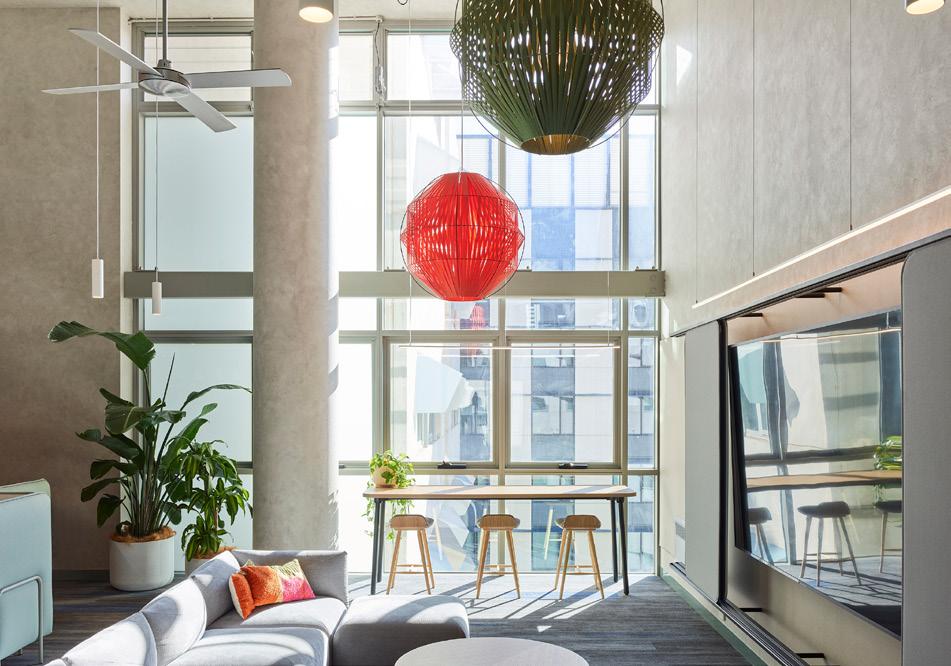
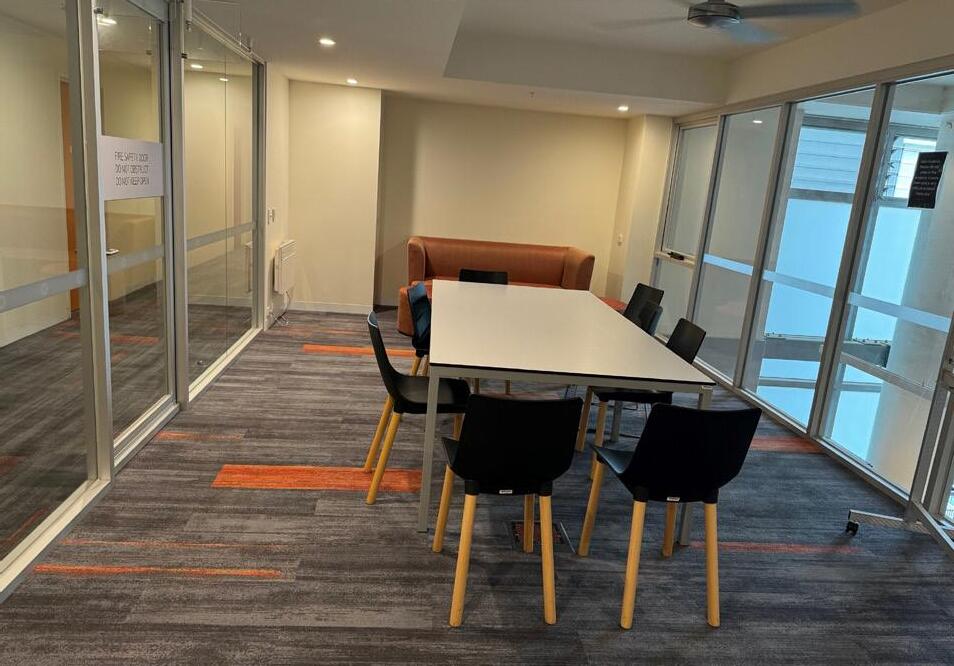
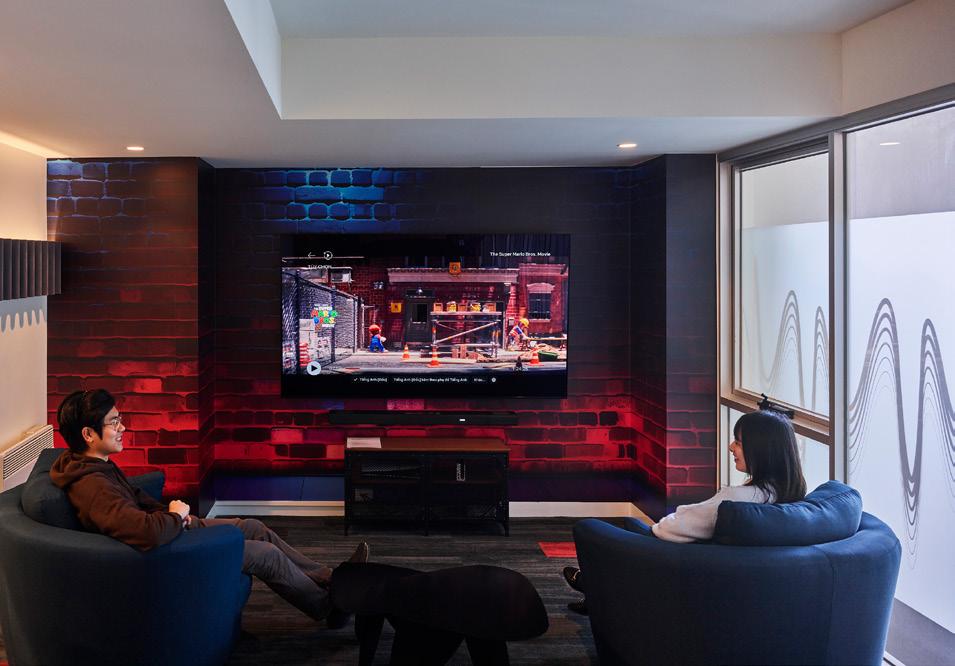
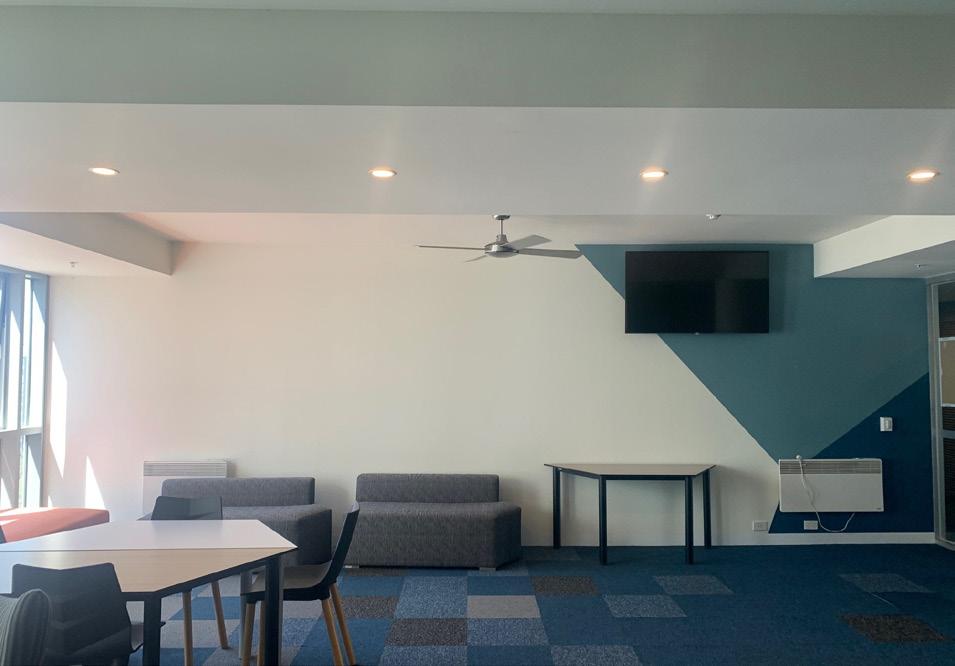
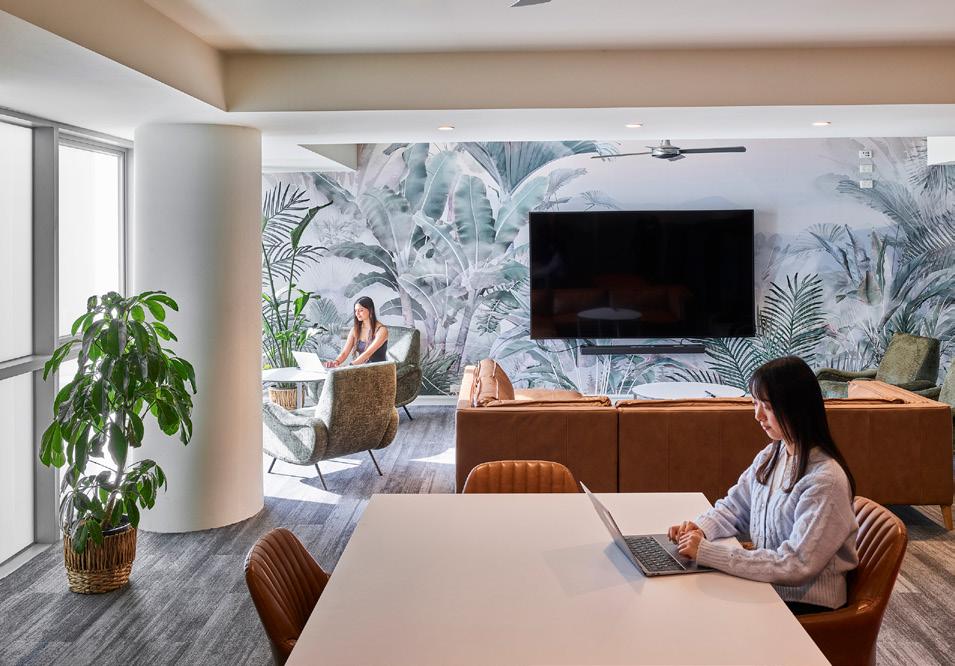
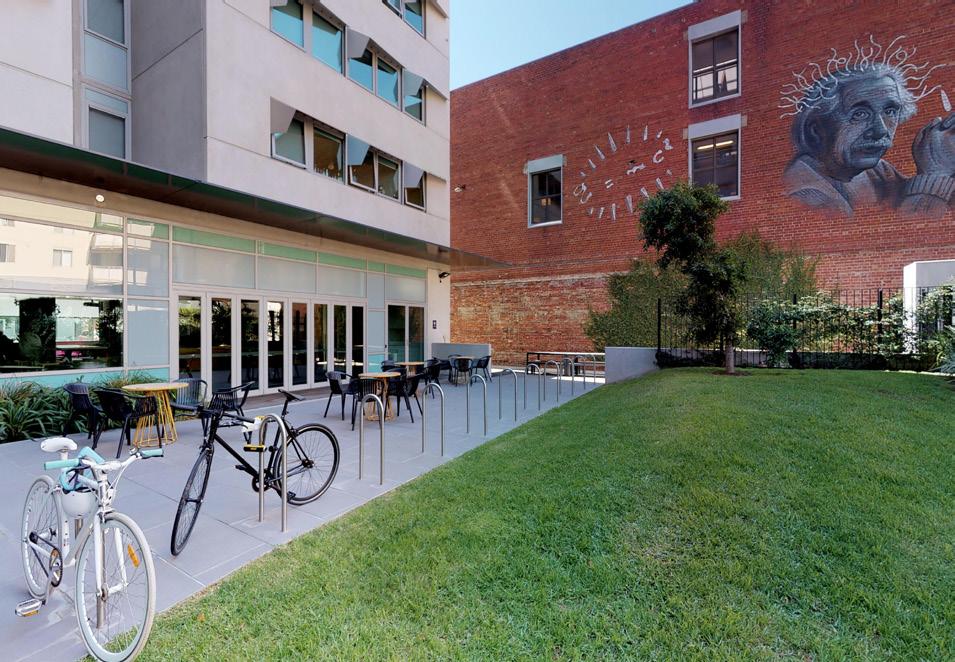

Written by Anthony Sewell, Deputy Head – Academic St Margaret’s College, Dunedin NZ
At St Margaret’s College in Dunedin, ensuring the wellbeing and satisfaction of our residential community is always front of mind. With 228 residents relying on one shared laundry space, it has become increasingly clear that the existing facilities are no longer fit for purpose. The current layout features an uneven ratio of washers to dryers and outdated equipment, creating regular bottlenecks and frustration for residents trying to complete this basic but essential task.
This desire and need for improvement has led to a redevelopment initiative aimed at expanding and modernising our laundry facilities. The core objective is to create a user-friendly and pragmatic space for residents to do their laundry. The project includes extending the current building space which will allow for an increase in washer capacity from 8 to 13, creating a balanced 1:1 ratio of washer to dryer and significantly reducing the user load—from 29 residents per washer to a more manageable 18. The project also includes an improved shelving system for laundry baskets, aligned with each washer-dryer pair, helping to eliminate confusion and improve user flow.
Getting this project off the ground required coordinated effort across multiple disciplines. We engaged MS Designs to develop architectural plans that not only made efficient use of space but also met New Zealand’s strict building consent and fire safety requirements, the latter supported by Fire Design Solutions. With plans in hand, we then invited contractors to quote and appliance suppliers to advise on the most fit-for-purpose washer-dryer stack units.
Once all parties had a chance to quote, a proposal was presented to the St Margaret’s College Council. With their approval, Stuarts Construction and Gooder Appliances were selected as our build and supply partners.
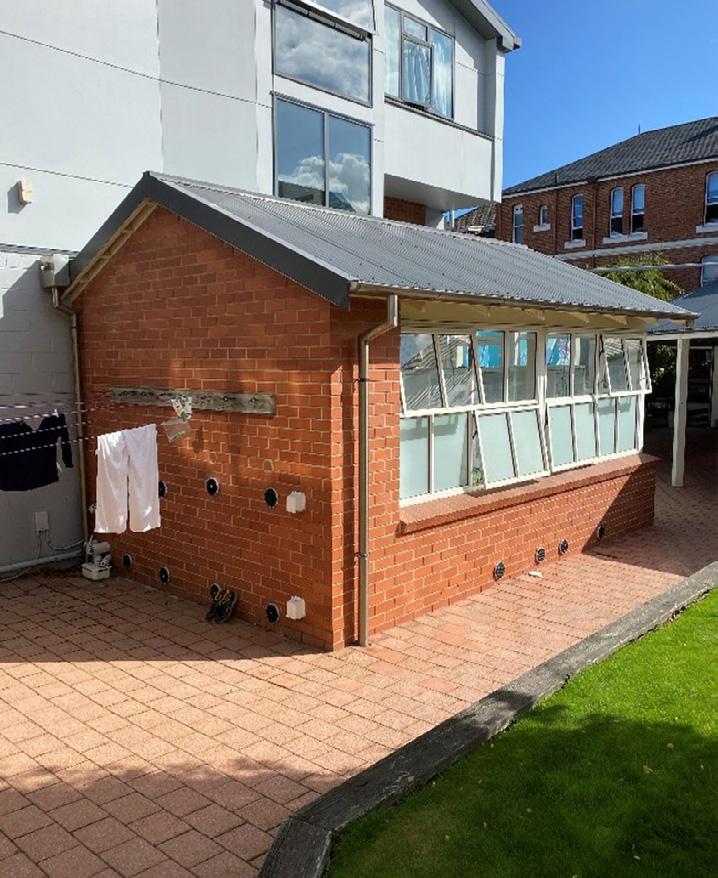
We are now preparing to enter the construction phase which will begin as soon as Semester 2 finishes in November, with completion targeted for the end of January, just ahead of the 2026 student intake. This project reflects our ongoing commitment to creating practical, user-friendly amenities that support the everyday needs of our residents. While not the most exciting redevelopment on first glance, students will no doubt appreciate the improved space and new Maytag appliances – and staff are looking forward to not having to problem solve laundry issues every week!
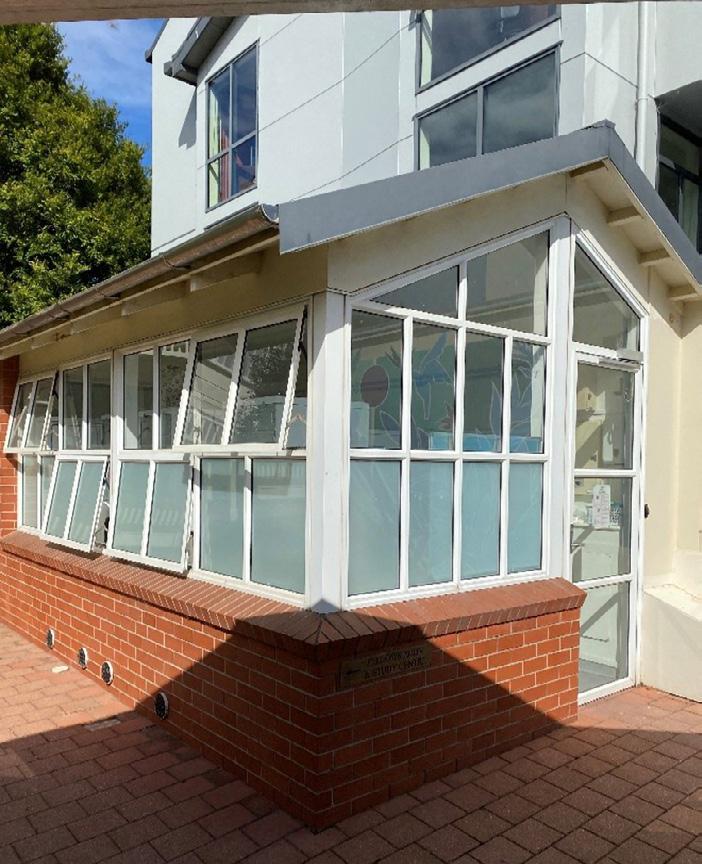
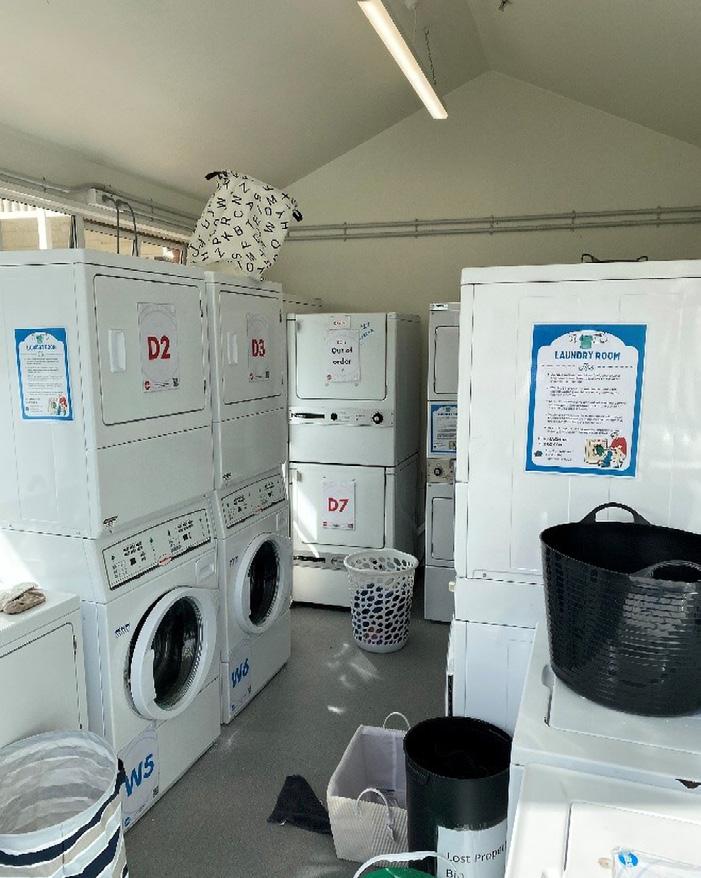
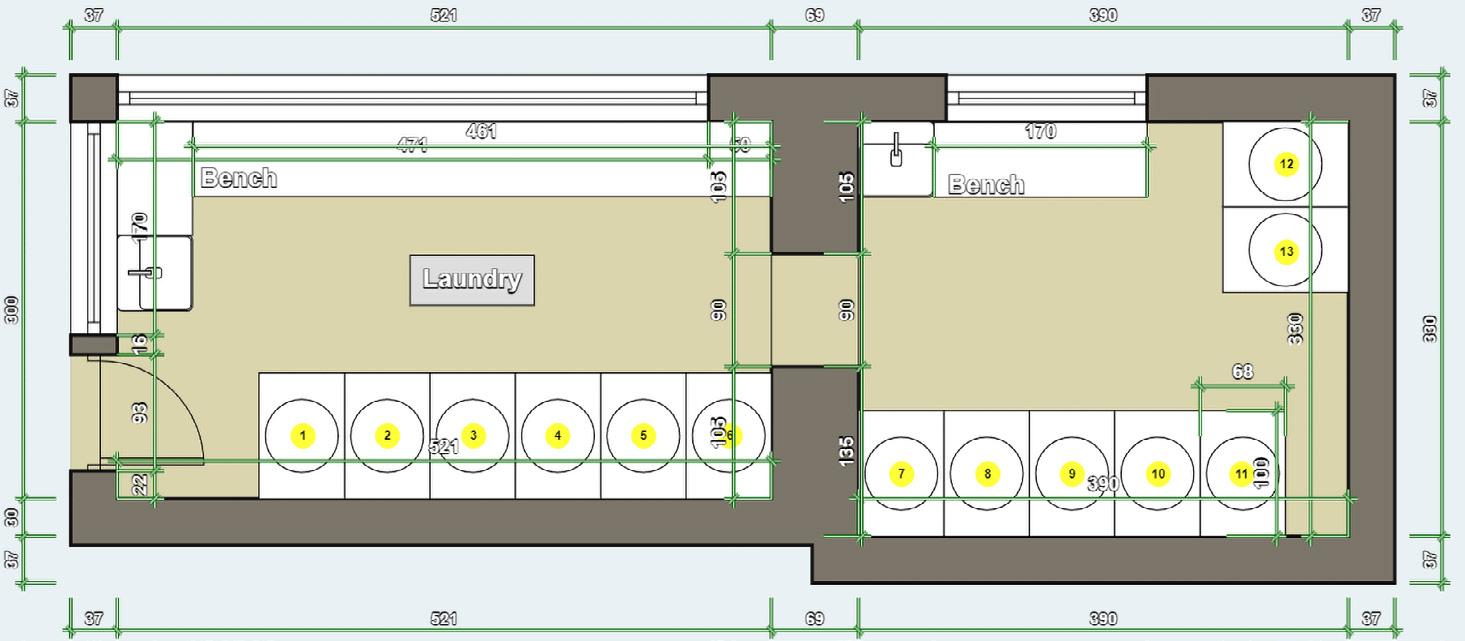
Written by Jess Rokobaro Acting General Manager Senior Manager, Business Support Student Living, Academic Division
City Campus Student Accommodation – Project Update
We’re pleased to share the latest progress on the University of Newcastle’s City Campus Student Accommodation – a transformative development that will provide 445 student beds in the heart of the Newcastle CBD and help address the critical shortage of student housing in the region.
Following our initial announcement, the project has continued to move forward with momentum, reaching several important pre-construction milestones.
On the ground: site progress
Enabling works are nearing completion, with only one final step remaining – a scheduled Ausgrid outage in August. This will allow for the safe removal of the existing electrical kiosk, clearing the way for the main construction phase to commence.
Construction partner Hansen Yuncken has begun their site setup and archaeological investigations, in accordance with Development Approval conditions. These works are critical to preserving and respecting the site’s heritage and cultural significance.
Looking ahead, substructure works are expected to begin in September, marking a major step forward as the project transitions into full-scale construction.
A facility with purpose
As a reminder, the City Campus Student Accommodation will include:
• Eight levels of student accommodation with 445 beds
• Ground-floor student and staff facilities, as well as retail spaces
• Outdoor communal areas and high-quality landscaping.
• A strong visual and cultural connection with Country
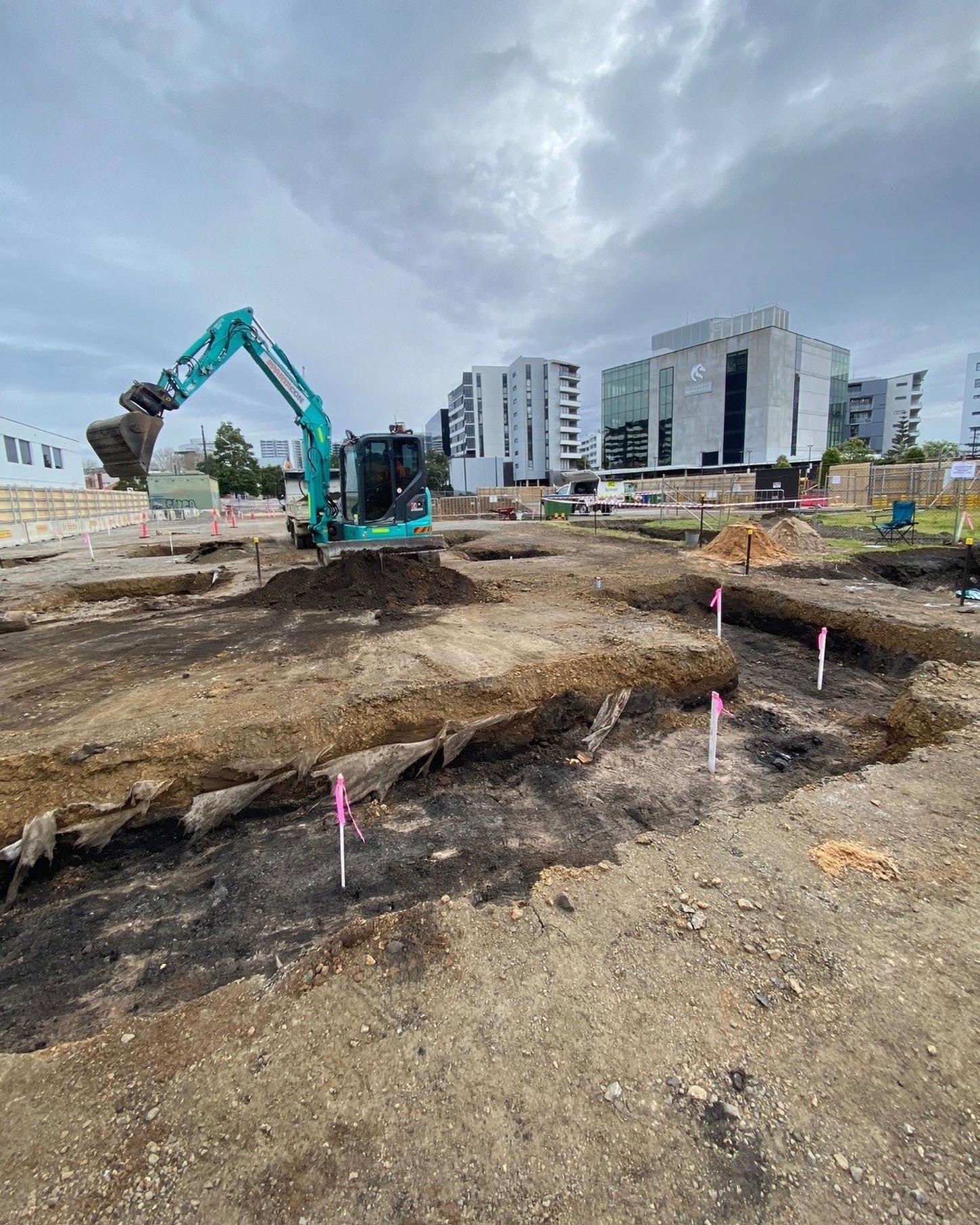
Time to opening – 15 months
• Welcoming, inclusive spaces that foster academic success, wellbeing , and community connection
Designed for students, shaped by place
The project continues to be guided by key principles:
• Designing with Country – embedding respect for the land and its cultural stories.
• Creating a vibrant urban marker – contributing to the identity of the western CBD approach.
• Activating the ground plane –creating a student-focused hub of energy, inclusion, and activity.
• A home away from home –offering a high-quality, safe, and supportive living environment.
Learning Consent delivered some of the best consent training I have seen The focus on peer-based support and the careful preparation of student leaders was exceptional – Manager, Student Wellbeing, UNE

GENDER-BASED VIOLENCE PREVENTION EDUCATION AND TRAINING
Learning Consent is a leading provider of comprehensive gender-based violence prevention education and training for universities, colleges and schools. Our self-paced online modules & in-person workshops are customisable and tailored to suit the unique context of each institution. Our training addresses university-specific contexts, including residential colleges and internal services for responding to and reporting gender-based violence The Learning Consent curriculum meets national and global standards guided by The National Higher Education Code to Prevent and Respond to Gender-based Violence, Universities Australia Good Practice Guide and the UNESCO International Technical Guidance on Sexuality Education.
Inclusive, accessible and customisable modules developed in collaboration with students and experts. Sex & Consent engages learners with a relatable, compelling and evidence-based eLearning experience that equips them with the knowledge and tools to navigate sexual consent and prevent genderbased violence in their everyday lives.
Interactive workshops that equip students with the tools to safely intervene, challenge harmful behaviour, and support a culture of accountability. Co-designed with students, and tailored for residential and university contexts, participants are provided a safe space to apply the skills for active bystander intervention to everyday-life scenarios
Live-acted workshops with university and college specific scenarios performed by professional actors, and discussion groups facilitated by trained student leaders. Students are stepped through the latest research on young people's experiences of gender-based and sexual violence, as well as best practice for responding to disclosures and reporting.
These workshops offer practical skills for staff and student leaders to respond safely to disclosures in a trauma-informed and personcentred way. Delivered in person or online, this training is essential for creating safe, supportive, and legally compliant university environments aligned with the National Code
learningconsent.com
info@learningconsent com